Health
8 IBS Symptoms You Need To Know About

Do certain foods give you embarrassing digestive trouble?
Do you race to the toilet multiple times a day, or go days without a bowel movement?
This article examines the most common symptoms of Irritable Bowel Syndrome (IBS) and what to do next.
What is IBS?
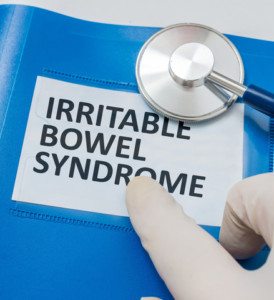 IBS is a gastrointestinal disorder characterized by recurrent digestive stress.
IBS is a gastrointestinal disorder characterized by recurrent digestive stress.
Those affected may have difficulty eating certain short-chain carbohydrates called FODMAPs.
IBS is not life-threatening but can cause stress and anxiety in everyday life if unmanaged.
It’s a problem for up to 20% of the population in the US and UK, 13% in Australia and 11% worldwide. In particular, women, those over 50, and people with previous gastrointestinal tract infections are more likely to have it (1, 2, 3).
Most people fall into 4 different IBS subtypes:
- Constipation (IBS-C)
- Diarrhea (IBS-D)
- Mixed constipation and diarrhea (IBS-M)
- Neither constipation or diarrhea occurring often (IBS-U)
Problem is that IBS is difficult to diagnose because it has no blood markers. Currently the best way for doctors to diagnose IBS is via the recurrent symptoms listed below.
Summary: IBS is a gastrointestinal disorder characterized by a variety of recurrent digestive symptoms. Your doctor will use these symptoms to help diagnose IBS.
1. Recurrent Bloating
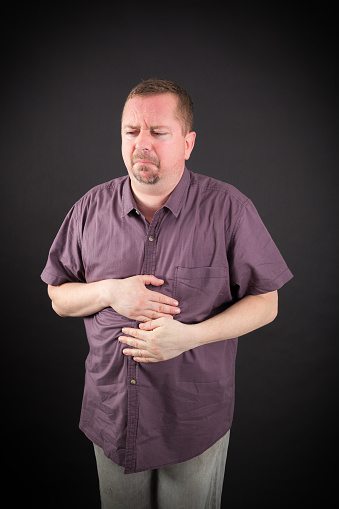 Do you suffer from bloating on a regular basis?
Do you suffer from bloating on a regular basis?
Stomach bloating is one of the most common IBS symptoms.
In fact, up to 96% of people with IBS experience bloating because they tend to have an over-sensitive gut lining (4).
One study of 198 IBS patients found bloating to be more common among those with intermittent symptoms and diarrhea.
However , another study of 195 IBS patients found bloating was strongly linked with constipation, abdominal pain, and gas (5, 6).
Summary: It seems bloating is common in both of the main IBS types, IBS-C and IBS-D.
2. Recurrent Diarrhea Is One of the Most Common IBS Symptoms
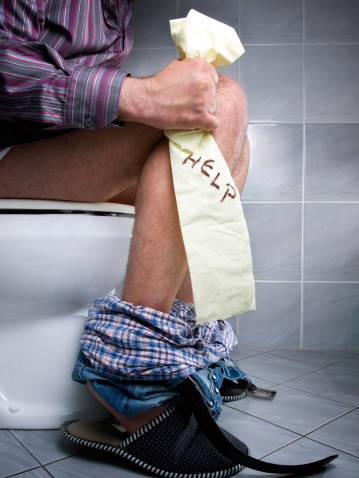 One of the most common subtypes of IBS is IBS-D.
One of the most common subtypes of IBS is IBS-D.
This is usually diagnosed when diarrhea affects you every day. At least much more so than regular bowel movements or constipation.
So you may be experiencing recurrent loose or watery bowel movements, typically with increased frequency and/or urgency. And this does not just go on for day, but for weeks or months.
Approximately 40% of people with IBS have IBS-D (7).
Summary: IBS-D is a common form of IBS characterized by chronic diarrhea.
3. Long-Term Constipation
 In contrast to diarrhea, long-term constipation can also be a sign of IBS.
In contrast to diarrhea, long-term constipation can also be a sign of IBS.
This is known as IBS-C.
Constipation is defined as having to strain to pass bowel movements, having the sensation of incomplete evacuation, and/or struggling to pass a bowel movement regularly (8).
Roughly 35% of IBS sufferers identify with the subtype IBS-C (7).
Summary: Long-term constipation is one symptom associated with IBS.
4. Alternating Constipation and Diarrhea
Having both diarrhea and constipation is also common in IBS.
It’s called IBS-M (M is for mixed).
This is a useful chart for identifying which classification you may fall into.
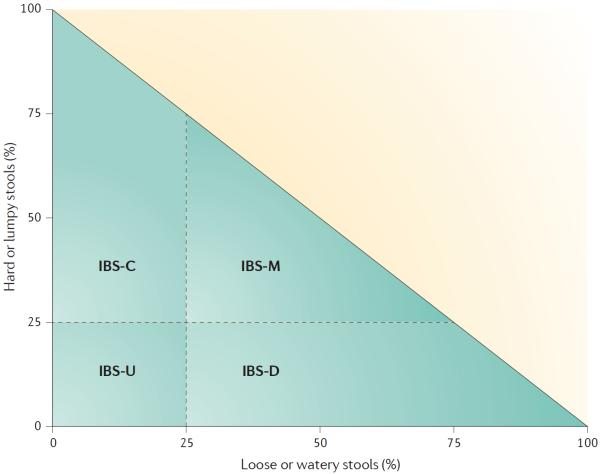
See your doctor to determine what subtype you may have.
Summary: Alternating between constipation and diarrhea is common with IBS and called IBS-M.
5. Abdominal Pain, Cramping and Excessive Gas
 Intestinal gas is one of the most frequent IBS symptoms.
Intestinal gas is one of the most frequent IBS symptoms.
Study participants have said they experience at least some gas 74% of the time, and excessive gas for the remainder (9).
Gas regularly accompanies abdominal pain and cramping in IBS.
The pain is often described as crampy, sharp, dull, gas-like, or a generalized ache with periods of cramps. This usually subsides after a bowel movement or passing gas.
Summary: Chronic gas accompanied with abdominal pain, cramping, and sometimes nausea, is very common with IBS and tends to ease after a bowel movement.
6. Mucus in Your Stools
Mucus in your stool is a notable symptom of IBS.
is a notable symptom of IBS.
It will typically be clear or white in color.
Several other more serious digestive disorders are associated with mucus in the stool, including:
- Celiac disease
- Crohn’s disease
- Lactose intolerance
- Ulcerative colitis
It’s very important that your doctor rules out any other conditions before dismissing this symptom.
Summary: Mucus in your stool can indicate other more serious issues. Alert your doctor if you have this symptom to rule out other conditions.
7. Garlic and Onion Cause You Grief
 Digestive troubles after eating garlic and onion is common, especially in people with IBS.
Digestive troubles after eating garlic and onion is common, especially in people with IBS.
This is because they’re very high in FODMAPs, particularly fructans. In fact, many of the symptoms in this article are often referred to as FODMAP symptoms.
Unfortunately it’s hard to avoid garlic and onion as they’re used in so many dishes and food products.
In fact, it’s likely garlic or onion powder is an ingredient in something you eat on a regular basis.
Summary: Fructans in garlic and onion can cause digestive distress for those with IBS.
8. Lethargy and Daytime Fatigue
 Unexpected signs of IBS include sleep disturbances and daytime fatigue.
Unexpected signs of IBS include sleep disturbances and daytime fatigue.
Sleep disturbances are a common occurrence, with one study revealing 62% of IBS sufferers had poor sleep quality (9).
The most common manifestations include:
- Sleeping less
- Waking up during sleep
- Difficulty falling asleep
- And non-restorative sleep (10).
All of these can result in daytime fatigue, which occur irrespective of other sleep-affecting conditions such as anxiety or depression (11).
Summary: Many people with IBS experience sleep disturbances and daytime fatigue.
What To Do If You Have IBS or FODMAP symptoms
 If you have any of the symptoms above, go to your doctor for a check-up.
If you have any of the symptoms above, go to your doctor for a check-up.
While IBS is not life-threatening, the symptoms can relate to other more serious conditions.
Once IBS is diagnosed, a dietitian can guide you on diet and lifestyle changes that will help get rid of symptoms.
A Low FODMAP Diet Can Help
The best known strategy for treating IBS is a Low-FODMAP diet (13).
FODMAPs are a short-chain carbohydrates that ferment in the large intestine if not properly digested.
A high-quality Australian study reported that 70% of participants with IBS felt better after only one week on a low-FODMAP diet, compared with a typical diet (12).
For details on how to get started, click here.
This article (8 IBS Symptoms You Need To Know About) was originally created and published by DietvsDisease.org and is republished here with permission as a contribution by the Author.
Animals
The Death Of A Pet Should Be Taken More Seriously By Counselors

Pets hold a special place in our lives, often becoming as cherished as any family member. Yet, when we face the heartbreak of losing these beloved companions, the depth of our grief is frequently underestimated and misunderstood, not only by those around us but also by some professionals who guide us through our darkest times. Why is the death of a pet often not taken as seriously as the loss of a human? This article explores the critical role that counselors can play in recognizing and addressing the profound psychological impact of pet loss, urging a reevaluation of how this grief is handled in therapeutic settings.
The Psychological Impact of Pet Loss
The grief experienced after the loss of a pet is profound and often mirrors the emotional intensity associated with losing a human loved one. This grief is characterized by deep sadness, loneliness, and sometimes even depression. Researchers emphasize the importance of recognizing the strength of the human-animal bond, which can significantly impact an individual’s mental and emotional well-being. The bond with a pet is not merely emotional but also psychologically stabilizing, providing companionship, unconditional love, and a sense of purpose.
When a pet passes away, the owner may experience a range of intense emotions that can affect their psychological health. This type of grief, often referred to as disenfranchised grief, lacks societal recognition and validation, leaving individuals to cope with their loss in isolation. This lack of acknowledgment can complicate the grieving process, making it harder for pet owners to seek and receive support. Studies have shown that pet owners often turn to their pets for emotional support more frequently than to family or friends, highlighting the significant role pets play in their lives.
In therapy, recognizing the validity of grief associated with pet loss is crucial. Counselors and therapists are encouraged to treat pet bereavement with the same seriousness as the loss of a human. This approach not only validates the client’s feelings but also opens pathways for healing and recovery. Therapeutic interventions might include talking through the loss, creating memorials, or expressing feelings through art, which helps in acknowledging and processing the grief.
Moreover, societal attitudes towards pet loss are slowly evolving, with increasing recognition of the deep emotional bonds formed between humans and animals. This shift highlights the need for mental health professionals to develop strategies and interventions specifically tailored to help individuals cope with pet loss effectively.
Role of Counselors in Pet Bereavement

Counselors play a crucial role in supporting individuals through the grieving process of losing a pet, a role that requires sensitivity and recognition of the deep emotional impact involved. The grief experienced from pet loss can be as intense and profound as the loss of a human, which necessitates a specialized approach in counseling practice.
Understanding and Validating Grief
Counselors are tasked with understanding the unique bond between pets and their owners and recognizing that the loss can lead to significant emotional distress. It is essential for mental health professionals to validate these feelings rather than minimize them. Validation helps individuals feel understood and supported, which is a critical component in the healing process.
Therapeutic Interventions
Effective counseling for pet bereavement might include creating a space where individuals can express their grief without judgment. This could involve discussing the pet’s role in their life, memories, and the feelings of emptiness that might follow the pet’s death. Therapists can use various interventions such as grief counseling techniques tailored specifically for pet loss, which may not be covered extensively in traditional grief counseling settings.
Education and Awareness
There is also a need for increased awareness and education among counselors regarding the significance of pet loss. Training programs and continuing education courses should include modules that focus on the psychological effects of losing a pet and strategies for providing effective support.
Supportive Practices
Incorporating the recognition of pet loss into therapeutic practices can significantly aid in normalizing these feelings and fostering a better coping environment. Counselors can guide clients in finding or forming support groups specifically for pet bereavement, which can provide additional communal support and decrease feelings of isolation.
Strategies for Counseling Pet Loss
Effective counseling strategies for pet loss involve recognizing the unique grief that comes with the death of a pet and providing support that acknowledges this significant emotional loss. Here are some tailored approaches that counselors can use to support grieving pet owners:
1. Validation of Grief
Counselors should begin by validating the client’s grief, affirming that their feelings of loss are both real and significant. Acknowledging the depth of the bond between the client and their pet helps to legitimize the grief process and can facilitate healing.
2. Educational Support
Providing educational materials that discuss pet loss and its impact can be incredibly helpful. Counselors can offer resources that explain the stages of grief specific to pet loss, which helps normalize the feelings that pet owners experience.
3. Therapeutic Techniques
Specific therapeutic techniques can be effective, including:
- Memory Boxes: Creating a physical box filled with mementos of the pet, such as collars, toys, and photos, can help clients process their grief by celebrating the life of their pet.
- Writing Letters: Encouraging clients to write letters to their deceased pets can facilitate expressing unresolved feelings and foster a sense of closure.
- Narrative Therapy: This involves helping clients tell their story of the pet’s life and death, which can aid in contextualizing the loss and its impact on their life.
4. Group Therapy
Group therapy sessions with other individuals who have experienced pet loss can provide a support network that helps diminish feelings of isolation. Sharing experiences with others who understand the unique nature of pet loss can be incredibly validating and healing.
5. Incorporate Rituals
Supporting clients in creating rituals to honor their pet’s memory can be therapeutic. Whether it’s a small ceremony, planting a tree, or creating an online memorial, these acts can help in the grieving process.
6. Support for Decision-Making
Counselors can also play a crucial role in helping pet owners make difficult decisions towards the end of a pet’s life, such as euthanasia. Providing a space to discuss these choices and the emotions surrounding them can be crucial.
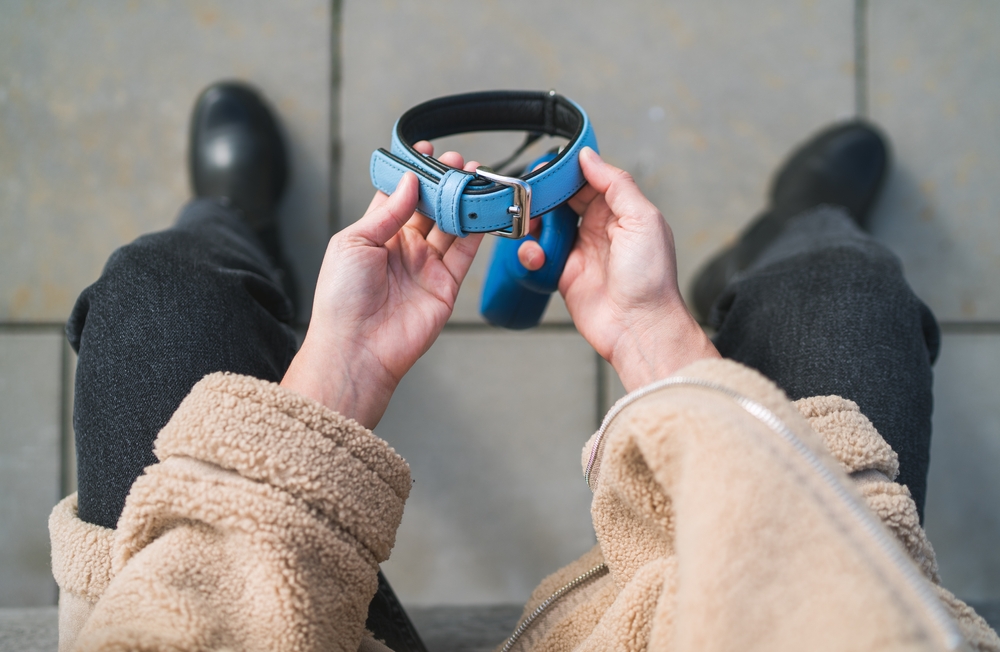
Challenges in the Current Counseling Approach
The current approach to counseling for pet bereavement faces several challenges that can impede effective support for individuals experiencing the loss of a pet.
- Lack of Standardized Training: One significant challenge is the lack of standardized training and resources for counselors on how to handle pet loss effectively. While grief counseling is a well-established field, specific strategies and programs focusing on pet bereavement are not commonly included in standard counseling curricula. This gap can leave counselors unprepared to address the unique aspects of grief associated with pet loss.
- Societal Underrecognition: Another challenge is the societal underrecognition of pet loss as a legitimate form of grief. This societal stance can influence how professionals approach pet bereavement, potentially leading to minimized responses to such losses. When the grief over a pet is not seen as valid by society, it can create a barrier for those seeking help, as they may feel their emotions are not justified or understood.
- Psychological Complexities: The emotional complexities associated with pet loss also pose a challenge for counseling. Unlike human relationships, the bond with a pet is often devoid of the conflicts and complexities that characterize human interactions, which can make the grief feel more profound and unalloyed. Counselors need to navigate these deep emotional territories while acknowledging the purity and intensity of the bond, which might not be addressed in general grief counseling protocols.
- Need for Specialized Approaches: The counseling field needs more specialized approaches that recognize the significant emotional impact of pet loss and the necessity for targeted therapeutic interventions. Effective grief counseling for pet loss should include elements such as validation of the client’s feelings, exploration of the pet’s role in the client’s life, and assistance with developing new coping mechanisms.
A Call to Recognize Pet Loss in Counseling
As we navigate the complexities of human emotions, the loss of a pet presents a significant, yet often overlooked, challenge. Counselors play a crucial role in addressing this unique form of grief, fostering an environment where pet owners feel validated and supported. The death of a pet can trigger profound grief that is every bit as intense as the loss of a human loved one, yet societal recognition remains insufficient. This article underscores the importance of developing specialized training for counselors, enhancing therapeutic approaches, and promoting societal acknowledgment of pet bereavement.
Integrating tailored counseling strategies, such as validation of grief, educational support, and therapeutic techniques, can significantly aid in the healing process. Moreover, the formation of support groups and the encouragement of commemorative rituals can offer additional comfort and community support to those in mourning.
Recognizing pet loss as a serious bereavement issue not only legitimizes the deep emotional bonds formed between humans and their pets but also advances the field of mental health to encompass all forms of familial loss. It is time for counseling practices to evolve and adapt, ensuring that every individual receives the empathetic support they need during times of profound loss.
Awareness
‘Bleeding Eye’ Virus Sparks Travel Warning and Worldwide Concern – What Is the Incurable Disease?

A mysterious and deadly virus is capturing global attention, sparking urgent travel warnings and widespread concern. Known for its unsettling nickname the “Bleeding Eye” virus, this disease has not only shaken the health sector but also left travelers and governments on high alert. Its symptoms are as alarming as its name, and its impact has already been felt in multiple regions.
What is this incurable disease that has the world watching so closely? How did it emerge, and why is it spreading so rapidly?
What Is the Bleeding Eye Virus?
The “bleeding eye” or Marburg virus is a highly virulent pathogen responsible for Marburg virus disease (MVD), a severe hemorrhagic fever in humans. First identified in 1967 during simultaneous outbreaks in Marburg and Frankfurt in Germany and Belgrade in Serbia, the virus was traced back to African green monkeys imported from Uganda for research purposes. This initial outbreak resulted in several fatalities among laboratory workers, marking the virus’s alarming entry into the human population.
Marburg virus is closely related to the Ebola virus, sharing similar structural characteristics and disease manifestations. Both viruses are filamentous and contain single-stranded RNA genomes, leading to severe hemorrhagic fevers with high mortality rates. The natural reservoir for the Marburg virus is the Egyptian fruit bat (Rousettus aegyptiacus), with human infections typically resulting from prolonged exposure to mines or caves inhabited by these bats.
Transmission to humans occurs through direct contact with the blood, secretions, organs, or other bodily fluids of infected individuals or animals. Human-to-human transmission is facilitated by direct contact with broken skin or mucous membranes, as well as contact with surfaces and materials contaminated with these fluids, such as bedding and clothing.
The World Health Organization notes that the average case fatality rate for MVD is around 50%, with rates varying from 24% to 88% in past outbreaks, depending on virus strain and case management. Currently, there are no approved vaccines or antiviral treatments for MVD.

Recent Outbreak and Current Status of Marburg Virus
Since the first recognized outbreak in Marburg, Germany, in 1967, Marburg virus disease (MVD) has primarily surfaced in African nations, with recent outbreaks reported in Ghana (2022), Tanzania (2023), and now Rwanda.
The Rwandan Ministry of Health confirmed its first case of the Marburg virus in September 2024, with the country reporting a total of 66 cases and 15 deaths by November 29, 2024. The outbreak prompted the U.S. State Department to issue a travel advisory on November 22, urging “increased caution” for travelers to Rwanda due to the virus. This advisory highlighted potential additional health screenings for travelers entering and exiting the country.
As of the last update, approximately 75% of reported Marburg patients in Rwanda have recovered, with the last known patient being discharged on November 8, 2024, after testing negative for the virus. Following this, the World Health Organization began a 42-day countdown on November 9, 2024, to potentially declare the end of the outbreak. If no new cases are reported during this period, the outbreak could officially be declared over by December 22, 2024. The Centers for Disease Control and Prevention (CDC) has maintained a Level 2 travel advisory (Practice Enhanced Precautions) for Rwanda and continues to monitor the situation closely in collaboration with international partners.
This recent episode in Rwanda highlights the persistent threat posed by hemorrhagic fevers like Marburg. There is a need for vigilant health surveillance, rapid response capabilities, and international cooperation to manage outbreaks effectively.
How Does the Bleeding Eye Virus Spread?
Marburg virus disease is a severe and often fatal illness characterized by a rapid onset of symptoms that can escalate swiftly. Below is the progression of the symptoms for early detection and improving survival rates.
- Incubation Period: The incubation period for MVD ranges from 2 to 21 days, with symptoms typically appearing abruptly.
- Initial Symptoms: The disease begins suddenly with high fever, severe headache, and malaise. Muscle aches and pains are common.
- Gastrointestinal Phase: By the third day, patients may experience severe watery diarrhea, abdominal pain and cramping, nausea, and vomiting. This phase can last for a week, and patients have been described as having “ghost-like” drawn features, deep-set eyes, expressionless faces, and extreme lethargy.
- Hemorrhagic Manifestations: Between days 5 and 7, hemorrhagic symptoms may develop, including:
- Bleeding from the nose, gums, and injection sites
- Blood in vomit and feces
- Spontaneous bleeding from the eyes, leading to the “bleeding eye” nickname
- Notably, “because it’s hemorrhagic, it ‘damages blood vessels and causes bleeding’ — often from the eyes, nose, mouth, or vagina.”
- Neurological Symptoms:
- In later stages, patients may exhibit neurological symptoms such as confusion, irritability, and aggression.
- Fatal Outcomes:
- In fatal cases, death usually occurs between 8 and 9 days after symptom onset, often preceded by severe blood loss and shock.

How Can the Spread Be Prevented?
For those in high-risk areas, such as caves or mines where bats are common, wearing protective clothing like gloves and masks is essential to avoid transmission from bats to humans.
During an outbreak, it’s vital to handle food safely by thoroughly cooking all animal products. Human-to-human transmission can be significantly reduced by avoiding direct contact with the bodily fluids of infected individuals. This includes not handling items like bedding and clothing that may have come into contact with the virus.
Isolation of suspected or confirmed cases is crucial, and monitoring anyone who has been exposed to the virus for 21 days can help prevent further spread. Safe burial practices are equally important, as the handling of bodies can lead to transmission.
For personal safety, avoid contact with potential animal carriers of the virus, such as Egyptian rousette bats and non-human primates in affected regions.
Should You Be Worried About Marburg Virus in the US?
As the Marburg virus captures headlines with its outbreak in Rwanda, it’s natural to wonder about the implications closer to home in the U.S. The good news, according to the CDC, is that the risk to the general U.S. population remains “low,” and this assessment is made with “moderate confidence.” So, what does this mean for those in the US?
The outbreak in Rwanda has been largely contained to specific clusters and has not shown signs of wider community spread. Additionally, measures are in place to monitor those who might bring the virus stateside. While the notion of the virus reaching the U.S. might seem concerning, the structure of travel from Rwanda to the U.S.—including the lack of direct flights and relatively few travelers—significantly reduces the likelihood of Marburg making its way here.
Furthermore, should the virus somehow enter the U.S., CDC reassures that the country’s public health system is prepared to handle it. Remember the Ebola outbreak in 2014-2015? It’s a similar scenario: despite the high stakes, only two infections occurred in the U.S., and both were contained without community spread.
For those without travel plans to Rwanda, the situation is more about staying informed than actively worrying. However, if you’ve recently been to Rwanda or know someone who has, it’s wise to be vigilant about health and follow the guidelines set by health authorities. Keeping informed through reliable sources and trusting our health systems are our best moves as we watch how this situation unfolds overseas.
Is There a Cure or Vaccine for Marburg Virus?
Currently, there is no approved cure or vaccine for Marburg virus disease (MVD). The WHO and various health agencies recognize the critical need for effective treatments and have reported that several vaccine and drug therapies are in the development stages. The Sabin Vaccine Institute and the International AIDS Vaccine Initiative (IAVI) are among the organizations actively working on potential vaccines. Additionally, researchers at Oxford University, known for developing the AstraZeneca COVID-19 vaccine, began trials in the UK this summer using similar technology for a Marburg vaccine candidate.
Despite these efforts, healthcare professionals must rely on supportive care measures, such as rehydration and symptom management, which have been shown to improve survival rates.
Diagnosing MVD is also challenging as its symptoms are similar to those of many other infectious diseases, including malaria and other viral hemorrhagic fevers. Confirmation of the Marburg virus infection relies on specialized diagnostic methods such as the antibody-capture enzyme-linked immunosorbent assay (ELISA).
Staying Vigilant Against the Marburg Threat
The Marburg virus, with its devastating impact and high mortality rate, remains a pressing global health concern. From its alarming symptoms to its rapid transmission, understanding this disease is vital for prevention and containment. While recent outbreaks have highlighted the challenges in managing this deadly virus, they have also spurred coordinated international efforts to enhance surveillance, enforce preventive measures, and develop potential treatments.
Staying informed, practicing good hygiene, and adhering to travel advisories are essential for mitigating risks, especially for those in or traveling to affected regions. By prioritizing education and vigilance, we can collectively work toward minimizing the spread of the Marburg virus and safeguarding public health.
Ancient History
The Ojibwa Tribe Combined These 4 Herbs To Make ‘Essiac Tea’, Which Kills Bodily Cancer Cells & Purifies Your Blood Naturally

Deep within the traditions of the Ojibwa tribe lies a remarkable secret—a blend of four humble herbs that has intrigued natural healers and sparked curiosity worldwide. Known today as Essiac tea, this ancient remedy is whispered about for its purported ability to combat disease, purify the blood, and restore balance to the body. Its origins, steeped in indigenous wisdom, and its controversial journey into modern medicine, make it a fascinating tale of nature’s potential to heal.
But what exactly makes this herbal concoction so special? How did the Ojibwa uncover its potent power, and why does it continue to captivate people seeking alternative paths to wellness? The answers lie in a delicate harmony of tradition, science, and mystery—a story waiting to unfold.
Historical Origins: The Ojibwa Legacy and Rene Caisse’s Contribution
The story of Essiac tea begins with the Ojibwa people, an Indigenous group from the Great Lakes region of North America. Renowned for their deep understanding of medicinal plants, the Ojibwa utilized a blend of herbs to create a healing brew believed to purify the body and combat various ailments. This traditional knowledge laid the foundation for what would later be known as Essiac tea.
In the 1920s, Canadian nurse Rene Caisse encountered a patient who had recovered from breast cancer. The patient attributed her healing to an herbal remedy given to her by an Ojibwa healer. Intrigued, Caisse obtained the formula and began administering it to others, naming the tea “Essiac”—her surname spelled backward. From 1922 to 1978, Nurse Caisse provided this herbal supplement to thousands at her clinic in Bracebridge, Ontario, often refusing payment for her services.
Caisse’s dedication to this remedy attracted both support and skepticism. While many patients reported positive outcomes, the medical community demanded scientific validation. Despite the controversies, Caisse remained committed to her work, collaborating with doctors like Dr. Charles Brusch in the 1960s to further research Essiac’s potential.
The Four Potent Ingredients of Essiac Tea

Essiac tea is a blend of four herbs, each contributing unique properties to the remedy:
- Burdock Root (Arctium lappa)
- Traditional Uses: Historically utilized to purify the blood and support liver function.
- Potential Benefits: Contains antioxidants that may neutralize free radicals, potentially reducing oxidative stress. Some studies suggest it can inhibit the growth of certain cancer cells, though more research is needed.
- Sheep Sorrel (Rumex acetosella)
- Traditional Uses: Employed for its diuretic and laxative effects, aiding in detoxification.
- Potential Benefits: Rich in vitamins and minerals, it may support immune function. However, scientific evidence supporting its anticancer properties is limited.
- Slippery Elm Bark (Ulmus rubra)
- Traditional Uses: Known for soothing the digestive tract and alleviating gastrointestinal discomfort.
- Potential Benefits: Contains mucilage, which can coat and soothe the throat and stomach. Its antioxidant properties may contribute to overall health, but specific anticancer effects are not well-established.
- Indian Rhubarb Root (Rheum palmatum)
- Traditional Uses: Traditionally used as a gentle laxative and to support digestive health.
- Potential Benefits: May possess anti-inflammatory and antioxidant properties. Some animal studies indicate it could inhibit the growth of liver cancer cells, but human studies are lacking.
While these herbs have been traditionally used for various health benefits, it’s important to note that scientific evidence supporting their efficacy, particularly in cancer treatment, is limited and sometimes contradictory. For instance, some studies have found that Essiac tea lacks anticancer effects and may even stimulate the growth of certain cancer cells.
Health Benefits of Essiac Tea
Essiac tea, a blend of four herbs—burdock root, sheep sorrel, slippery elm bark, and Indian rhubarb root—has been associated with various health benefits. While scientific evidence supporting these claims is limited, some studies suggest potential positive effects:
- Antioxidant Properties: Essiac tea is rich in antioxidants, which help neutralize harmful free radicals in the body. A study published in the Journal of Ethnopharmacology found that Essiac tea exhibited significant antioxidant activity, suggesting it may protect cells from oxidative stress.
- Anti-Inflammatory Effects: The individual herbs in Essiac tea have demonstrated anti-inflammatory properties. For instance, burdock root contains compounds that may reduce inflammation, potentially benefiting conditions like arthritis.
- Immune System Support: Some proponents claim that Essiac tea can boost the immune system. While direct scientific evidence is lacking, the antioxidant and anti-inflammatory properties of its ingredients may contribute to overall immune health.
- Detoxification: Essiac tea is often promoted as a detoxifying agent, purportedly aiding in the elimination of toxins from the body. However, there is insufficient scientific evidence to substantiate these claims.
- Potential Anticancer Activity: Research on Essiac tea’s anticancer effects has yielded mixed results. Some laboratory studies have shown that high concentrations of Essiac tea can inhibit the growth of certain cancer cells, such as breast and leukemia cells. However, other studies have found no effect or even a stimulation of cancer cell growth. Notably, a study reported in Breast Cancer Research and Treatment found that Essiac “stimulated the growth of breast cancer cells,” raising concerns about its safety in certain contexts.
It’s important to note that while some studies suggest potential health benefits of Essiac tea, the evidence is not conclusive, and some findings are contradictory. Additionally, Essiac tea may cause side effects such as nausea, vomiting, frequent urination, and increased bowel movements. Pregnant or breastfeeding women are advised to avoid this product.

Scientific Studies and Efficacy of Essiac Tea
The scientific community has extensively studied Essiac tea to evaluate its purported health benefits, particularly its anticancer properties. The findings, however, have been inconsistent and, at times, concerning.
Laboratory and Animal Studies
Some laboratory studies have identified that Essiac tea exhibits antioxidant activity, which could theoretically protect cells from oxidative damage. For instance, a study published in Anticancer Research noted that Essiac tea “prevented damage to cells and DNA,” suggesting a potential protective effect against cancer development.
Contradictory results have emerged regarding Essiac’s impact on cancer cells. An older test-tube study observed that high concentrations of Essiac tea “blocked the growth of breast and leukemia cancer cells.” Conversely, other research has found that Essiac had no significant effect on cancer cell proliferation. Notably, a study reported in Breast Cancer Research and Treatment found that Essiac “stimulated the growth of breast cancer cells,” raising concerns about its safety in certain contexts.
Human Studies
Clinical trials involving human participants are scarce, and the available data do not support Essiac tea as an effective cancer treatment. The National Cancer Institute states that “no results of clinical studies with people of Flor Essence have been reported,” and similarly, “no reports of clinical trials of Essiac have been reported in peer-reviewed scientific journals.”
The U.S. Food and Drug Administration (FDA) has not approved Essiac or Flor Essence as treatments for cancer or any other medical condition. These products are available in the United States as dietary supplements, which are subject to less stringent regulations than pharmaceutical drugs.
Organizations such as Cancer Research UK emphasize that “there is no scientific evidence that Essiac can help to treat cancer.” They advise patients to consult healthcare professionals before using such remedies, especially when undergoing conventional cancer treatments, to avoid potential interactions or adverse effects.
Safe Use and Precautions

While Essiac tea is often promoted for its potential health benefits, it’s crucial to be aware of possible side effects and interactions with medications.
Consumption of Essiac tea has been associated with several side effects, including:
- Gastrointestinal Issues: Some individuals have reported nausea and vomiting after consuming Essiac tea.
- Flu-like Symptoms: Users may experience swollen glands, headaches, and general flu-like symptoms.
- Skin Reactions: There have been instances of skin redness and inflammation linked to Essiac tea consumption.
- Increased Excretory Activity: Some users report more frequent urination or bowel movements.
In one case, a woman experienced loss of appetite, fatigue, and abdominal pain after consuming Essiac tea for six months; her symptoms improved upon discontinuation.
Interactions with Medications
Essiac tea may interact with certain medications, potentially altering their effectiveness:
- Chemotherapy Drugs: There is evidence suggesting that Essiac tea can inhibit liver enzymes responsible for metabolizing some chemotherapy agents, potentially leading to increased toxicity.
- General Drug Metabolism: Essiac may slow down the rate at which your body breaks down certain drugs, affecting their potency and duration.
Precautions
- Consult Healthcare Providers: Before incorporating Essiac tea into your regimen, especially if undergoing treatments like chemotherapy, consult your healthcare provider to avoid adverse interactions.
- Monitor for Adverse Effects: Be vigilant for any side effects and report them to your healthcare professional promptly.
- Pregnancy and Breastfeeding: The manufacturers advise against the use of Essiac tea during pregnancy or breastfeeding.
Honoring Tradition While Seeking Truth
Essiac tea embodies the intricate balance between ancient wisdom and modern science. Originating from the Ojibwa people, this herbal remedy reflects their deep connection with nature and their understanding of the body’s ability to heal. However, as compelling as its history and anecdotal acclaim may be, the scientific evidence supporting Essiac tea’s efficacy—especially as a cancer treatment—remains inconclusive and, at times, contradictory.
While Essiac tea may offer some antioxidant and detoxifying benefits, it is not a substitute for conventional medicine. It’s crucial for individuals considering this remedy to approach it with caution, consult healthcare professionals, and prioritize evidence-based treatments. By respecting the Ojibwa’s traditional knowledge and rigorously examining its applications through science, we honor both the past and our pursuit of reliable health solutions.
Animals
Research Reveals Widely Used Pesticide ‘Atrazine’, Is Turning Male Frogs Into Female Frogs In Just 3 years, & Has Been In Our Drinking Water For Over 30 Years

For over three decades, a widely used pesticide has quietly seeped into our drinking water and ecosystems, carrying implications far beyond its agricultural purpose. Known as atrazine, this chemical has been celebrated for its ability to boost crop yields, yet its hidden effects on the natural world and potentially human health are nothing short of alarming.
Recent research has uncovered a startling phenomenon involving atrazine’s impact on amphibians, raising profound questions about the broader consequences of this chemical in our environment. What does this mean for the delicate balance of ecosystems—and could humans also be at risk?
What Is Atrazine?
Atrazine is a synthetic herbicide belonging to the triazine class, extensively utilized in agriculture to manage broadleaf and grassy weeds. Since its introduction in 1958, it has become one of the most widely applied pesticides globally, particularly prevalent in the United States. Its primary applications include crops like corn, sorghum, and sugarcane, where it is valued for its effectiveness and cost-efficiency.
However, atrazine’s extensive use has led to significant environmental concerns. It is frequently detected as a contaminant in ground, surface, and drinking water, raising alarms about its persistence and mobility in the environment.
Beyond environmental contamination, atrazine is recognized as a potent endocrine disruptor. Research indicates that it can interfere with hormonal systems across various vertebrate classes, including fish, amphibians, reptiles, birds, and mammals. Notably, studies have shown that atrazine exposure can lead to the feminization and chemical castration of amphibians, such as frogs.
The widespread presence of atrazine in ecosystems and its potential to disrupt endocrine functions have prompted regulatory scrutiny. While the European Union banned atrazine in 2004 due to groundwater contamination concerns, it remains widely used in the United States. The U.S. Environmental Protection Agency (EPA) continues to evaluate atrazine’s safety, considering its environmental and public health implications.
Atrazine’s Effect on Frogs

Atrazine, a widely used herbicide, has been shown to cause significant endocrine disruption in amphibians, particularly frogs. Research led by Professor Tyrone B. Hayes at the University of California, Berkeley, revealed that exposure to atrazine can result in the feminization and chemical castration of male frogs.
In a controlled study, 40 male African clawed frogs (Xenopus laevis) were raised in water containing 2.5 parts per billion (ppb) of atrazine, a concentration commonly found in the environment. Over a period of three years, it was observed that approximately 75% of the exposed male frogs exhibited reduced testosterone levels and decreased fertility, effectively rendering them chemically castrated. Notably, about 10% of the male frogs developed into fully functional females capable of mating with males and producing viable eggs.
These findings suggest that atrazine disrupts normal hormonal functions by enhancing the activity of aromatase, an enzyme that converts testosterone into estrogen. This hormonal imbalance leads to the demasculinization and feminization observed in the affected frogs.
The implications of these results are profound, as amphibians are often considered indicator species, reflecting the health of their ecosystems. The ability of atrazine to induce such dramatic changes in frogs raises concerns about its potential effects on other wildlife and possibly humans. As Professor Hayes noted, “When you have studies all over the world showing problems with atrazine in every vertebrate that has been looked at… all of them can’t be wrong.”
Potential Risks to Human Health
Atrazine’s extensive use in agriculture has led to its pervasive presence in drinking water supplies, raising significant concerns about its potential impact on human health. As a known endocrine disruptor, atrazine can interfere with hormonal systems, potentially leading to various health issues.
- Endocrine Disruption and Reproductive Health: Studies have indicated that atrazine exposure may be linked to reproductive health problems in humans. Research has shown that atrazine can increase human aromatase activity, leading to elevated estrogen levels, which may disrupt normal hormonal balance. Additionally, some studies have associated atrazine exposure with low fertility, low sperm count, and poor semen quality in humans living in agricultural areas.
- Cancer Risks: There is evidence suggesting a potential association between atrazine exposure and certain cancers. For instance, a study detected an elevated risk of non-Hodgkin lymphoma for individuals who had both atrazine and nitrate in their drinking water. However, the International Agency for Research on Cancer (IARC) has classified atrazine as “not classifiable as to its carcinogenicity to humans” (Group 3), indicating that current evidence is insufficient to establish a definitive link.
- Birth Defects and Developmental Issues: Research has explored the potential connection between atrazine exposure and adverse birth outcomes. Some studies have reported associations between maternal exposure to atrazine-contaminated drinking water and increased risks of birth defects, low birth weights, and preterm births. However, findings across studies have been inconsistent, and further research is needed to confirm these associations.
- Regulatory Perspectives: The U.S. Environmental Protection Agency (EPA) has evaluated atrazine’s safety and, as of 2006, stated that “the risks associated with the pesticide residues pose a reasonable certainty of no harm.” However, ongoing research and emerging studies continue to inform regulatory assessments, and the EPA periodically reviews atrazine’s safety profile to ensure public health protection.
Environmental Impact of Atrazine

Atrazine’s extensive application in agriculture has led to its widespread presence in various environmental compartments, notably soil and water systems. This pervasive distribution has raised significant concerns regarding its ecological effects.
- Soil Health: Atrazine exhibits persistence in soil environments, which can adversely affect soil health. Its presence has been linked to alterations in microbial communities, potentially inhibiting the growth of non-target plant species. Such disruptions can lead to reduced soil fertility and diminished agricultural productivity.
- Water Contamination: Due to its moderate water solubility, atrazine readily disperses beyond its initial application sites through surface runoff, especially following rainfall events. This mobility results in the contamination of surface and groundwater resources, posing risks to aquatic ecosystems and potentially affecting human drinking water supplies.
- Aquatic Ecosystems: In aquatic environments, atrazine has been shown to modify growth, enzymatic processes, and photosynthesis in plants. It exerts mutagenic and genotoxic effects, leading to defective cell division, erroneous lipid synthesis, and hormonal imbalances in aquatic fauna and non-target animals.
- Biodiversity and Wildlife: Atrazine’s impact extends to terrestrial wildlife, particularly amphibians. Studies have demonstrated that atrazine exposure can cause demasculinization in male northern leopard frogs, even at low concentrations. This effect is indicative of atrazine’s role as an endocrine disruptor, potentially contributing to global amphibian declines.
- Regulatory Perspectives: The environmental persistence and widespread detection of atrazine have prompted regulatory scrutiny. The European Union banned atrazine in 2004 due to groundwater contamination concerns. In contrast, the United States Environmental Protection Agency (EPA) continues to evaluate atrazine’s safety, considering its environmental and public health implications.
Regulatory Actions Surrounding Atrazine
Atrazine, a herbicide widely used in agriculture, has long been a lightning rod for debates over its safety and environmental impact. Its pervasive contamination of water sources and potential health risks have led to a patchwork of regulatory responses worldwide, reflecting differing priorities and risk assessments.
The European Union took decisive action in 2004, banning atrazine outright. This bold move stemmed from mounting evidence of groundwater contamination and the chemical’s potential to harm both ecosystems and public health. The EU’s zero-tolerance policy for such risks underscores its commitment to environmental stewardship and consumer safety.
In contrast, the United States has maintained atrazine’s approval, albeit under periodic scrutiny. The Environmental Protection Agency (EPA) has wrestled with balancing its economic benefits for farmers against its environmental toll:
- 2003: The EPA controversially reapproved atrazine despite growing scientific concerns about its impact on aquatic life and hormonal disruption in animals.
- 2020: An interim review led to partial restrictions, including a ban on its use in Hawaii, Alaska, and U.S. territories, as well as the removal of roadside applications. These measures aimed to mitigate its environmental footprint while preserving its agricultural utility.
This piecemeal approach has drawn criticism from environmental advocates who argue for stronger protections and from agricultural stakeholders who value atrazine for its efficacy in weed control.
Global Regulatory Variances
Elsewhere, responses to atrazine reflect a mix of caution and adaptation:
- Australia: Restrictions on non-agricultural applications have been implemented to reduce environmental contamination, signaling a middle ground between outright bans and unrestricted use.
- Canada: Special reviews have led to reduced atrazine usage, with ongoing assessments to ensure that health and environmental protections keep pace with scientific findings.
These differing regulatory approaches highlight the complex interplay between environmental priorities, economic interests, and public health concerns, making atrazine a global case study in the challenges of chemical regulation.
How to Protect Your Family Against Pesticides and Herbicides

Given the potential health risks associated with pesticides like atrazine, it’s crucial to adopt strategies that minimize exposure. Here are some effective measures:
1. Consume Organic and Locally Grown Produce
Opting for organic and locally sourced fruits and vegetables can significantly reduce pesticide intake. Organic farming practices limit chemical usage, and local produce often involves fewer pesticides due to sustainable farming methods.
2. Filter Drinking Water
Utilizing water filtration systems, such as those employing activated carbon or reverse osmosis, can effectively remove pesticide residues, including atrazine, from drinking water. This step ensures safer consumption for your family.
3. Support Wetland Conservation
Wetlands naturally filter pollutants, including pesticides, from water sources. Engaging in and supporting wetland conservation efforts can enhance this natural filtration, leading to cleaner water supplies.
4. Implement Natural Weed Control Methods
Adopting alternatives to chemical herbicides, such as mulching, hand weeding, and cover cropping, can effectively manage weeds without introducing harmful chemicals into the environment.
5. Choose Native Plant Species for Landscaping
Landscaping with native plants reduces the need for pesticides, as these species are typically more resistant to local pests and diseases, promoting a healthier ecosystem.
6. Purchase Hormone-Free Meat Products
Selecting hormone-free meat can decrease exposure to endocrine-disrupting chemicals that may accumulate in livestock exposed to pesticides like atrazine.
7. Enhance Immune Health
Incorporating antioxidant-rich foods, such as fruits and vegetables, and probiotic-rich items like yogurt, can strengthen the immune system, aiding the body in combating potential toxins.
Atrazine: From Farmlands to Drinking Water
Atrazine’s story is one of stark contrasts—praised for its agricultural benefits while raising serious red flags for ecosystems, wildlife, and human health. Decades of scientific research reveal that this herbicide’s effects stretch far beyond weeds, disrupting the hormonal balance in amphibians and contaminating water supplies critical to human survival.
The call to action is clear: informed choices and sustainable practices can mitigate the risks associated with atrazine. By advocating for stricter regulations, supporting safer farming methods, and adopting individual protective measures, we can work towards a future where agricultural progress doesn’t come at the cost of our environment and health.
As we uncover more about atrazine and its long-term consequences, one truth remains certain—the decisions we make today will shape the health of our ecosystems and communities for generations to come.
Health
NICU Nurse Adopts Teen Mother of Preemie Triplets

When NICU nurse Katrina Mullen first met Shariya Small, a teenage mother navigating the overwhelming challenges of caring for her premature triplets, she couldn’t have imagined how their lives would intertwine. Earlier this year, their story took a remarkable turn: Mullen, 45, legally adopted Small, becoming both a mother to the teen and a grandmother to her three toddlers.
For Mullen, this act of compassion carried profound personal meaning. Nearly 30 years ago, she had been in a similar position, a 16-year-old facing the difficult decision to place her own son up for adoption. “My life has come full circle,” Mullen shared with PEOPLE, reflecting on the unexpected path that led her to build this unconventional family.
Now, in their Indiana home, the days may be unpredictable, but their bond is steadfast. “Every day is different, and every day we just love each other through it and we figure it out,” Mullen says. It’s a testament to resilience, love, and the unbreakable connections forged in the most unlikely circumstances.
A Journey of Unexpected Challenges: Shariya’s Story
For Shariya Small, motherhood came as an overwhelming surprise. At just 14 years old, she discovered she was pregnant over Mother’s Day weekend in 2020—a revelation that left her grappling with fear and uncertainty. “I was 14, I was like, ‘I don’t want to be a mom right now,’” she candidly shared with PEOPLE.
What began as a single shock soon escalated. During her first ultrasound on August 3, Small learned she was carrying not one, but three babies. “I was speechless,” she recalled. “I was panicking, but I had no time to panic.” Just weeks later, on August 30, 2020, the triplets—two girls and a boy—arrived prematurely at only 26 weeks.
The early arrival of her babies thrust Small into a whirlwind of medical complexities, sleepless nights, and a crash course in parenthood far earlier than she’d ever anticipated. It was the beginning of a challenging journey, one that would test her strength and resilience in ways she couldn’t have imagined.
Finding Connection in the NICU
Life in the NICU was isolating for Shariya Small. As her premature triplets battled to grow stronger at Community Hospital North, the teen often found herself alone, navigating an unfamiliar and overwhelming environment. “I felt like I couldn’t relate to all the other moms on the floor,” Small admitted.
Amid the solitude, Katrina Mullen, a seasoned NICU nurse, stepped in with a compassionate gesture. She introduced herself to Small, offering not just medical support but an understanding ear. “I wanted her to know that I was a teen mom, and that I knew how scary it was,” Mullen shared. As a single mother to five boys and someone who had once faced the challenges of teen motherhood, Mullen’s words carried a resonance that Small desperately needed.
In the sterile halls of the NICU, a unique bond began to form—a connection built on shared experiences and a mutual understanding of the trials that come with young motherhood. It was a bond that would soon evolve into something far deeper.
A Growing Bond of Trust and Support
The connection between Katrina Mullen and Shariya Small grew steadily, built on moments of kindness and trust. Mullen frequently checked in on Small, offering her presence and a listening ear. Gradually, Small began leaving the confines of her room, seeking out the nurse who had shown her unwavering compassion.
On quieter nights, when Mullen wasn’t directly caring for the NICU’s tiny patients, Small would join her in her office, sitting by her side. These moments offered a rare reprieve from the isolation. “It felt really good to finally have somebody to talk to that wasn’t on my phone,” Small shared, reflecting on the comfort of their conversations.
Through these shared moments, Mullen became more than just a nurse—she became a mentor, confidant, and source of stability for a young mother navigating an uncertain path. Their bond deepened, setting the stage for the extraordinary decision that would change both of their lives.
From Hospital Halls to Lifelong Connection
In January 2021, Shariya Small’s journey in the NICU reached a milestone as her triplets were discharged one by one. While leaving the hospital marked a new chapter, it also meant stepping into an entirely new set of challenges as a young mother of three. Before their final goodbyes, both Small and Katrina Mullen exchanged notes, agreeing to stay in touch—a simple gesture that soon became the foundation of a deeper connection.
What began as occasional updates quickly turned into daily calls. “I started hearing from her every day,” Mullen recalled. For Small, those calls were lifelines in moments of uncertainty. “I was really overwhelmed,” she admitted. “I would just call Katrina and she would talk me down and tell me what to do.”
Mullen became a steadfast presence in Small’s life, offering guidance, reassurance, and practical advice. Even beyond the walls of the NICU, their bond continued to grow, proving that the connection they had formed in the hospital was far from fleeting.
Uncovering Hardships: A Turning Point
Katrina Mullen’s visits to Shariya Small’s home revealed the difficult reality the young mother faced. Mullen noticed troubling signs, including a severe eczema flare-up on one of the triplets and overall poor health among the children. The situation raised alarms, leading to a CPS investigation.
When it was determined that the children would be removed from the home, Small made a heartfelt request to stay with Mullen. “Would you be willing to take them?” Mullen recalls being asked. Without hesitation, she agreed. Just two days later, Small and her triplets moved in with Mullen, beginning their journey as a foster family.
This pivotal moment marked a dramatic shift in their relationship, transforming Mullen from a supportive friend into a parental figure navigating the complexities of fostering four children under one roof.
Shariya’s Journey: From Adversity to Aspiration

Shariya Small’s resilience continues to shine as she pursues a brighter future for herself and her children. In June, she celebrated a significant milestone by graduating high school, a testament to her determination despite the challenges of young motherhood. Now, she’s setting her sights on Marian University, where she plans to study social work. Her goal is to support other teen moms, drawing from her own experiences to guide others through similar hardships.
Balancing education and parenting comes with its hurdles. While the university’s daycare program accommodates her daughters, her son requires specialized attention due to a feeding tube. True to her unwavering support, Katrina Mullen has adjusted her work schedule to ensure Small can continue her studies. Together, they’re navigating this new chapter, with Small’s aspirations serving as a beacon of hope for what’s to come.
A Grandmother’s Love: Mullen’s New Role
For Katrina Mullen, becoming a grandmother to Shariya Small’s triplets has brought immense joy and fulfillment. Reflecting on her new role, Mullen shared, “They make me smile and laugh so much every day.” Their infectious energy and progress have become a source of constant happiness in her life.
Now approaching their third birthday, the triplets are thriving. The girls have successfully graduated from therapy and are preparing to start preschool, marking a significant milestone in their development. Meanwhile, their brother continues to make strides with occupational and physical therapy, demonstrating resilience and determination.
Mullen’s commitment to her growing family is unwavering, and her perspective as a grandmother is one of pride and gratitude for the laughter, love, and hope the children bring into her home.
A Story of Love, Growth, and Resilience
Katrina Mullen beams with pride as she reflects on Shariya Small’s transformation. From a scared teenager navigating unexpected motherhood to a devoted and capable parent, Small has blossomed into what Mullen calls a “fierce” and hands-on mother.
For Small, her journey is defined by love—the unwavering bond she shares with her triplets. While her children are unaware of her age, they know one truth that matters most. “All they know is that they have a mom that loves them,” she says, a sentiment that encapsulates the strength and heart of their family.
Together, Mullen and Small’s extraordinary journey showcases the power of compassion, resilience, and the unbreakable bonds that can emerge in the most unexpected circumstances. Their story is not just about overcoming challenges; it’s about creating a family built on unconditional love and support.
Awareness
20 Early Signs Your Body is Fighting Cancer

The human body is an extraordinary machine, constantly working to maintain balance and protect itself from harm. However, when something as serious as cancer begins to develop, the body often sends subtle warning signals long before the disease progresses. These signals can be easy to dismiss—after all, who hasn’t felt unusually tired or experienced a minor ache and chalked it up to stress or aging? Yet, these seemingly insignificant changes can sometimes indicate that your body is fighting something far more serious.
Cancer, in its early stages, can often be silent, with symptoms that mimic everyday ailments. This is why awareness is so critical. Spotting early warning signs doesn’t just increase the chances of catching cancer before it spreads—it can also make treatment more effective and improve survival rates significantly. While not every symptom is a definitive sign of cancer, certain patterns or persistent issues deserve closer attention. Understanding these clues is a vital step in advocating for your health.
1. Unexplained Weight Loss

Shedding a few pounds without trying might seem like a welcome surprise, but it could also be one of the first signs your body is fighting cancer. Sudden and unexplained weight loss—typically defined as losing 10 pounds or more within a short period—can be caused by changes in your body’s metabolism. Cancer cells can hijack the body’s energy supply, causing a rapid breakdown of fat and muscle tissue. This process often goes unnoticed until the weight loss becomes significant.
Certain cancers are more commonly associated with this symptom, particularly those affecting the stomach, pancreas, lungs, or esophagus. For instance, pancreatic cancer can interfere with your body’s ability to digest nutrients, while stomach cancer may lead to a loss of appetite or difficulty eating. Lung cancer, on the other hand, may disrupt metabolic processes that lead to sudden weight changes.
It’s important to note that weight loss can happen for many reasons, including stress, changes in diet, or other health conditions. However, if the weight loss is rapid, persistent, and unaccompanied by changes in your lifestyle, it’s essential to consult a doctor. Catching this symptom early can help identify potential underlying issues, including the possibility of cancer, before it progresses further.
2. Persistent Fatigue
Everyone feels tired now and then, but cancer-related fatigue is different. This type of exhaustion doesn’t go away with rest and often feels overwhelming. Persistent fatigue can be caused by cancer cells draining the body’s energy or by the immune system working overtime to fight off the disease. This symptom is especially common in cancers like leukemia, where the body is actively battling abnormal blood cells, or colon and stomach cancers, which can cause internal bleeding and anemia.
The key distinction here is that this fatigue is unrelenting. It might feel like a heaviness in your body or an inability to focus or perform daily tasks. While fatigue is common in everyday life, when it persists without explanation and disrupts your normal routine, it’s worth getting checked out. Catching the cause early could uncover a hidden condition, including cancer.
3. Changes in Skin Appearance
The skin is one of the first areas of the body to show signs of internal issues, including cancer. Changes like yellowing (jaundice), darkening, redness, or a persistent rash can indicate something deeper is at play. For instance, jaundice is often linked to pancreatic cancer, while itchy, scaly patches might be associated with certain types of lymphoma.
Non-healing sores, particularly in sun-exposed areas, are another warning sign and could point to skin cancers like melanoma, basal cell carcinoma, or squamous cell carcinoma. Be especially cautious of new moles or changes to existing ones—such as irregular borders, multiple colors, or sudden growth—as these could indicate melanoma. Paying attention to these changes and seeking medical advice promptly can make a crucial difference.
4. Unusual Bleeding
Unexpected bleeding, whether it’s in the stool, urine, or from coughing, is a symptom that should never be ignored. Different types of cancers can lead to unusual bleeding. For example, colorectal cancer can cause blood in the stool, while bladder or kidney cancer might show up as blood in the urine. Persistent coughing with blood may indicate lung or throat cancer.
Sometimes, unusual bleeding is internal and not immediately noticeable, but symptoms like anemia, fatigue, or dark, tarry stools can point to hidden blood loss. If you notice any form of abnormal bleeding, even if it seems minor, seek medical attention. Early diagnosis can prevent further complications.
5. Persistent Cough or Hoarseness
A cough that won’t go away or a hoarse voice lasting for weeks might be linked to lung, throat, or thyroid cancer. Unlike a cold or seasonal allergies, cancer-related coughs are often dry and persistent. You may also notice blood-tinged phlegm, which should raise immediate concern.
Hoarseness, especially when accompanied by difficulty swallowing or persistent throat discomfort, could indicate cancer in the larynx or esophagus. These symptoms often overlap with other common conditions, so their persistence is a key warning sign to pay attention to.
6. Lumps or Swellings

Finding a lump or swelling in any part of your body—whether it’s the breast, neck, armpit, or groin—should prompt further investigation. These lumps could represent swollen lymph nodes, a common early sign of lymphoma or leukemia. In the breast, a lump could indicate breast cancer, particularly if it feels hard, immovable, and irregular in shape.
While not all lumps are cancerous, the texture, size, and location can provide critical clues. Regular self-examinations are vital for catching abnormalities early, as these growths are often painless in the early stages of cancer.
7. Changes in Bowel or Bladder Habits
Alterations in bathroom routines, such as chronic diarrhea, constipation, or blood in the stool, could signal colorectal cancer. Similarly, frequent urination, pain while urinating, or blood in the urine might indicate bladder or prostate cancer.
Sometimes, these changes occur gradually, making them easy to dismiss. However, persistent symptoms, especially when combined with pain or visible changes, should be assessed by a healthcare provider. Routine screenings like colonoscopies can be life-saving in catching these cancers early.
8. Difficulty Swallowing or Persistent Indigestion
Trouble swallowing or a constant feeling of food getting stuck in your throat could be linked to cancers of the esophagus or throat. Persistent indigestion or a burning sensation in the chest may point to stomach or gastrointestinal cancers.
While these symptoms can also be caused by conditions like acid reflux, the key difference is their persistence despite lifestyle changes or over-the-counter treatments. If eating becomes painful or you start avoiding certain foods due to discomfort, it’s time to seek medical advice.
9. Pain That Doesn’t Go Away

Pain that lingers without a clear cause is often the body’s way of signaling a problem. Persistent back pain, for example, may be linked to pancreatic or kidney cancer, while ongoing headaches might suggest a brain tumor. Bone pain, especially in the arms, legs, or pelvis, can be a symptom of bone cancer.
The nature of cancer-related pain is often deep, aching, and unrelieved by typical painkillers. If you’ve tried managing chronic pain without success, consult a doctor to rule out any underlying conditions, including cancer.
10. Fever Without Infection
A persistent fever with no obvious cause—such as a cold, flu, or other infection—can be an early sign of blood cancers like leukemia or lymphoma. Cancer-related fevers often occur at night and may be accompanied by chills or sweats.
While fever is the body’s natural response to fighting illness, its presence without a clear explanation should be taken seriously. It might indicate the immune system is battling something more severe, such as cancer.
11. Mouth Sores or White Patches
Sores in the mouth that don’t heal after a few weeks or white patches on the gums or tongue could be symptoms of oral cancer. This is especially common in smokers, heavy drinkers, or individuals with a history of chewing tobacco use.
Painful or persistent mouth sores, especially when accompanied by difficulty swallowing or jaw stiffness, should prompt immediate evaluation. Oral cancer, when detected early, is highly treatable.
12. Night Sweats

Waking up drenched in sweat, even in cool temperatures, could signal certain types of cancers, such as lymphoma. Night sweats associated with cancer are typically more severe than those caused by hormonal changes or common illnesses. They often occur alongside fever or unexplained weight loss, making them a symptom that should not be ignored.
13. Unexplained Swelling in the Face or Neck
Swelling in the face or neck could be a sign of a tumor pressing against blood vessels, reducing blood flow. This symptom is often linked to cancers of the lungs or chest, where growths can obstruct major veins. While swelling might seem minor at first, its persistence or recurrence warrants medical evaluation.
14. Frequent Infections
Cancers such as leukemia and lymphoma weaken the immune system, making the body more susceptible to frequent or lingering infections. If you find yourself constantly battling colds, respiratory issues, or other infections that seem unusually severe or long-lasting, it may indicate an underlying condition affecting immune function.
15. Changes in Nails

Unusual changes in your nails can be an early cancer indicator. Dark streaks or spots under the nails may point to skin cancer, while excessively pale or white nails could be linked to liver issues or anemia, sometimes associated with underlying cancers. Clubbing of the fingers—where the tips enlarge and nails curve downward—can signal lung cancer.
16. Persistent Bloating
Persistent bloating, especially in women, is often associated with ovarian cancer. Unlike typical bloating that fluctuates, cancer-related bloating tends to be constant and accompanied by other symptoms like pelvic pain or changes in appetite. Men may experience similar issues if gastrointestinal cancers are present.
17. Persistent Headaches
Chronic headaches that don’t respond to over-the-counter medication could be a symptom of a brain tumor. These headaches often worsen over time and may be accompanied by nausea, vision changes, or difficulty focusing. While not all headaches are linked to cancer, their persistence and severity should be monitored.
18. Vision Change
Blurred vision, double vision, or sudden vision loss can indicate certain types of cancers, particularly brain or eye cancer. These changes often occur due to tumors pressing on nerves or interfering with the brain’s visual processing centers.
19. Persistent Itchiness

Chronic, unexplained itching might be more than just a skin condition. Certain cancers, like lymphoma or liver cancer, can cause systemic itching due to the release of chemical compounds in the bloodstream. This itching is often intense and doesn’t respond to typical treatments.
20. Difficulty Breathing or Chest Pain
Shortness of breath, chest pain, or wheezing can be an early sign of lung cancer or cancer that has spread to the chest cavity. These symptoms may also occur if tumors press against airways or blood vessels. Persistent respiratory discomfort, particularly if it worsens over time, is a clear signal to seek medical advice.
Stay Vigilant, Stay Empowered
Cancer doesn’t always shout; often, it whispers through subtle, persistent symptoms that are easy to dismiss. By tuning into your body and recognizing these warning signs early, you’re taking a crucial step toward protecting your health. Awareness is the first line of defense, and knowledge empowers you to act swiftly when something feels off.
Remember, not every unusual symptom is a sign of cancer, but persistence and patterns matter. If you’ve noticed unexplained changes—whether it’s weight loss, fatigue, or something as simple as skin discoloration—don’t ignore them. Trust your instincts and consult a healthcare professional. Early intervention saves lives, and what might seem like a minor concern could hold the key to catching a condition early.
Your health is your greatest asset, and staying informed is the best way to safeguard it. By understanding these early signs and advocating for yourself, you’re not just reacting—you’re taking charge. Pay attention, ask questions, and don’t hesitate to seek answers. When it comes to your well-being, every moment counts.
Consciousness
Top 10 Mental Health Myths You Need to Stop Believing

In a world where mental health awareness is on the rise, myths and misunderstandings still linger, shaping perceptions in ways that can be harmful and misleading. Many of us have likely encountered some common phrases like, “People with mental health issues just need to toughen up,” or “Therapy is only for those who can’t handle life.” But are these beliefs really rooted in fact, or are they products of outdated thinking and misconceptions?
Myth 1: Mental Health Problems Are Rare
Mental health challenges aren’t as rare as some might think—they affect a huge portion of the global population. According to the World Health Organization (WHO), “1 in 4 people in the world will be affected by mental or neurological disorders at some point in their lives.” In the United States, more than one in five adults live with a mental illness, according to the National Alliance on Mental Illness (NAMI). This prevalence shows how common mental health issues are and underscores the need to recognize and address them as a regular part of health.
The COVID-19 pandemic has only intensified mental health struggles. A study published in JAMA Network Open found that the number of adults experiencing depression in the U.S. tripled during the pandemic, highlighting the importance of increased mental health support, especially during times of global crisis.
Understanding how common mental health issues are is key to fighting stigma and helping people feel comfortable seeking support. Realizing that these challenges affect many can foster a more supportive and empathetic society.
Myth 2: People with Mental Health Issues Are Weak
The idea that mental health struggles reflect personal weakness is a harmful misconception. Mental health conditions are complex medical issues, influenced by a mix of genetic, biological, environmental, and psychological factors—none of which reflect on an individual’s character or strength.
The South Australian Health Department states, “A mental illness is not a character flaw. It is caused by a complex interplay of genetic, biological, social and environmental factors.” This underscores that mental health issues are not personal shortcomings but multifaceted health conditions.
NAMI also emphasizes that mental health conditions “have nothing to do with being lazy or weak, and many people need help to get better.” Seeking help is actually a proactive and courageous step, not a sign of weakness. It takes resilience and strength to confront these challenges, engage in treatment, and work toward recovery.
In reality, managing a mental health condition often requires significant courage. People facing these challenges show immense strength by seeking treatment and committing to recovery. As many say, “Fighting a mental health condition takes a great deal of strength”—a perspective that recognizes the resilience required to manage these struggles.
Myth 3: Therapy is Only for “Crazy” People

There’s this idea out there that therapy is only for people dealing with serious mental illness, but that’s a huge misconception. Therapy can actually help with all kinds of things—from handling everyday stress to working on personal growth and navigating life’s ups and downs.
Think of therapy as a safe, private place where you can talk openly with someone who’s trained to really listen and guide you. It’s different from venting to friends or family. Therapists have tools and techniques they’re trained to use that can genuinely make a difference.
And science backs this up. For example, research in the Journal of Counseling Psychology found that people who go to therapy report feeling better and handling life’s challenges more easily.
The truth is, therapy isn’t just for people in crisis. Lots of folks go to work on self-awareness, strengthen their relationships, or just set themselves up to live a fuller life. Let’s get rid of the idea that therapy is only for people with “serious” issues. It’s a helpful resource for anyone looking to feel better and grow.
Myth 4: Mental Health Conditions Are Permanent
A lot of people think that if you’re diagnosed with a mental health condition, you’re stuck with it forever. But that’s not always the case—plenty of people see real improvement, and some even recover fully.
Mental health isn’t a one-size-fits-all kind of thing. Recovery looks different for everyone, and things like getting help early, finding the right treatment, and making lifestyle changes can make a huge difference. The National Alliance on Mental Illness (NAMI) even says, “recovery is a process, and it’s possible for people to recover and live full and productive lives.”
There’s research to back this up, too. One study in Psychiatric Services found that people dealing with serious mental health challenges saw big improvements in their lives when they had solid, community-based support.
Recovery might mean different things to different people. For some, it’s learning how to manage symptoms so they can live well. For others, it’s about reaching a point where symptoms are no longer an issue. Either way, mental health challenges don’t have to be a lifelong roadblock. Improvement is possible, and with the right help, people can and do live fulfilling lives.
Myth 5: People with Mental Health Disorders Are Violent

There’s this stereotype that people with mental health issues are violent, but it’s just not true. Most people dealing with mental health challenges aren’t violent at all—in fact, they’re often more likely to be victims of violence rather than the ones causing it.
Studies show that mental health issues alone don’t make someone violent. A big review done in 2015 found that only about 4% of violent acts in the U.S. could be linked to people with mental health disorders. So blaming mental illness for violent behavior doesn’t really add up and actually creates a lot of unfair stigma.
Plus, people with severe mental health conditions are actually at a higher risk of getting hurt themselves. Research has shown they’re more likely to be victims of violent crime compared to the general population.
It’s also worth remembering that things like drug or alcohol use, financial issues, and personal history are way bigger factors in violent behavior than mental health. Breaking down this myth is important to help reduce stigma and build a more accurate, compassionate understanding of mental health.
Myth 6: Mental Health Issues Are a Sign of Weakness
A lot of people still think that mental health struggles mean a person is weak or lacks willpower. But honestly, mental health has nothing to do with being “tough” or “weak.” Mental health conditions are just as real as physical ones, and they happen because of a whole mix of factors—genetics, environment, biology, you name it.
Imagine telling someone with a broken leg to just “toughen up” and walk it off. It sounds silly, right? Yet people say things like this about mental health all the time. Groups like the National Alliance on Mental Illness (NAMI) are clear about it: mental health issues aren’t caused by a lack of character or inner strength.
Truth is, facing a mental health challenge actually takes a lot of strength. It’s not easy to ask for help, stick to treatment, and keep going, especially when things get tough. People dealing with mental health issues are often some of the strongest out there—they’re just dealing with a different kind of battle.
So let’s ditch the idea that mental health is about weakness. Getting through hard times, reaching out for help, and working on yourself takes serious courage.
Myth 7: Only People Without Friends Need Therapists
Some people think therapy is just for folks who don’t have close friends or family to lean on. But that’s not really true. Therapy is a totally different kind of support—it’s a place where you can talk openly with someone who’s trained to help you work through things without any judgment or personal ties.
Friends and family are great, sure, but they’re not exactly equipped to handle everything. Therapists, on the other hand, know how to help you get to the root of things in a way that even the best friend can’t. Plus, in therapy, you don’t have to hold back or worry about how it might affect someone else. It’s just you, figuring things out for yourself.
And here’s the thing: therapy isn’t just for people dealing with big crises. Plenty of people go just to work on self-improvement, sort through their thoughts, or get better at handling life’s ups and downs. Whether you’re looking to build confidence, manage stress, or just understand yourself a bit better, therapy can be a huge help.
So, therapy isn’t about lacking friends. It’s about taking the time to work on yourself in a way that friends or family just can’t provide.
Myth 8: Mental Health Problems Are Permanent
A lot of people think that if you’re dealing with a mental health issue, it’s something you’ll just have to live with forever. But that’s actually not true. Many people see major improvements over time, and some even reach a place where they feel completely better.
Recovery isn’t the same for everyone. For some, it means finding ways to manage symptoms well enough to enjoy life, while others might actually see their symptoms go away altogether. Things like the right treatment, a strong support system, and some lifestyle tweaks can make a world of difference.
The National Alliance on Mental Illness (NAMI) even says, “recovery is a process, and it’s possible for people to recover and live full and productive lives.” And research backs this up—lots of studies show that with the right help, people dealing with mental health issues often experience big changes for the better.
So, no, mental health challenges aren’t necessarily forever. With the right help and time, many people find themselves in a much better place.
Myth 9: Addiction Is a Lack of Willpower

There’s a common idea that addiction is just a lack of willpower or self-control, but it’s way more complicated than that. Addiction isn’t about being “weak”—it’s a real medical condition that affects the brain.
When someone becomes addicted, their brain chemistry actually changes, especially in areas that deal with motivation and rewards. This is why willpower alone usually isn’t enough to break the cycle. The National Institute on Drug Abuse (NIDA) explains it well: addiction is “a chronic, relapsing disorder characterized by compulsive drug seeking, continued use despite harmful consequences, and long-lasting changes in the brain.”
Basically, addiction rewires the brain, making it incredibly hard to quit without help. Studies back this up too, showing that people struggling with addiction benefit most from a combination of treatments—things like counseling, support groups, and sometimes medication.
So let’s throw out the idea that addiction is about a lack of willpower. It’s a complex medical issue, and people deserve understanding and proper help, not judgment.
Myth 10: People with Schizophrenia Have Multiple Personalities
A lot of people mix up schizophrenia with having “multiple personalities,” but they’re actually two completely different things. Schizophrenia is a mental health condition that affects how someone thinks, feels, and perceives reality, sometimes causing things like hallucinations or delusions.
The confusion likely comes from the word “schizophrenia” itself, which loosely means “split mind.” But it doesn’t mean a split personality—more like a disconnect in how emotions and thoughts align with reality. The World Health Organization (WHO) clarifies that schizophrenia is really about distortions in thinking and perception, not multiple identities.
Dissociative Identity Disorder (DID), which used to be called multiple personality disorder, is actually the condition where someone has two or more distinct identities or personality states. It’s totally separate from schizophrenia and has its own symptoms and treatments.
Understanding the difference is important, because mixing up these conditions just adds to the misunderstanding and stigma around mental health. Schizophrenia isn’t about “split personalities”—it’s a serious but manageable mental health condition that deserves empathy and accurate information.
Dispelling the Myths, Embracing the Truth
Despite the progress made in understanding mental health, misconceptions continue to fuel stigma and create unnecessary barriers for those seeking support. Recognizing the myths that surround mental health is an essential first step in fostering a more compassionate and educated society. By exploring and debunking these misconceptions, we encourage a shift in perspective, moving away from judgment and toward understanding.
Understanding that mental health challenges are common, multifaceted, and treatable—and that seeking help is a strength—helps build a supportive environment where individuals feel safe reaching out. This transformation starts with each of us, as we challenge the myths we encounter and promote a more accurate view of mental health.
With every myth dispelled, we make room for greater acceptance, empathy, and action. By embracing the truth, we help dismantle the stigma surrounding mental health, paving the way for a world where well-being is prioritized and everyone has the opportunity to thrive.
Health
Are We Really Addicted to Our Phones? The Psychology Behind Digital Dependence

In today’s digital world, smartphones have transformed from mere gadgets into essential lifelines. They keep us connected, informed, and entertained, serving as our gateway to almost everything—from instant communication and endless information to a virtual space that feels like home. But as these devices nestle deeper into our daily lives, a growing question arises: When does helpful convenience cross into unhealthy attachment?
Phone addiction is more than a buzzword; it’s a reality for millions who find themselves checking their screens constantly, craving notifications, and feeling anxious without their devices. Could the device that connects us to the world be isolating us from it at the same time? In this article, we’ll explore the surprising psychology behind our digital dependency, the signs it may be affecting us, and practical ways to regain balance.
What Is Phone Addiction and Why Does It Happen?
Phone addiction, often referred to as “nomophobia” (the fear of being without a mobile phone), is characterized by excessive and compulsive use of smartphones, leading to significant interference with daily life, relationships, and responsibilities. This behavioral addiction shares similarities with other compulsive behaviors, such as gambling, where individuals experience a loss of control over their actions despite negative consequences.
The underlying mechanism of phone addiction is closely linked to the brain’s reward system, particularly the neurotransmitter dopamine. Dopamine plays a crucial role in motivating behavior by providing pleasurable sensations when we engage in rewarding activities. Smartphone use, especially interactions on social media, triggers the release of dopamine, reinforcing the behavior and creating a cycle of craving and reward. As noted by psychiatrist Anna Lembke, “That’s the hallmark of an addictive drug. It just intrinsically draws people in.”
Research has shown that notifications and social interactions via smartphones activate the brain’s reward pathways, leading to repeated engagement. A study published in the journal Frontiers in Psychiatry highlights that problematic cell-phone use has been associated with personality variables such as extraversion, neuroticism, and impulsivity, as well as psychiatric comorbidities like anxiety and depression.
The design of smartphones and applications also contributes to their addictive potential. Features like infinite scrolling and variable rewards are intentionally implemented to keep users engaged. Tristan Harris, a former Google design ethicist, pointed out that “services like Facebook and YouTube leverage our attention and engagement to sell ads or otherwise attract funding. It’s happening not by accident, but by design.”
Recognizing the Signs of Problematic Phone Use

Recognizing the signs of problematic phone use is essential for understanding and addressing potential addiction. Individuals may experience a range of symptoms, including:
- Preoccupation with the phone: Constantly thinking about or using the device, even during important tasks.
- Anxiety without access: Feeling anxious or disoriented when the phone is not nearby.
- Excessive use: Spending an inordinate amount of time on the phone, often at the expense of other activities.
- Negative emotions upon restriction: Experiencing irritability or distress when phone usage is limited.
These behaviors can lead to significant disruptions in daily life, affecting personal relationships, work, and overall well-being. A study published in BMC Psychiatry found that approximately 23% of children and young people exhibited problematic smartphone use, which was associated with increased odds of depression, anxiety, and poor sleep quality.
Additionally, the phenomenon of “ringxiety”—the false sensation of hearing a phone ring or feeling it vibrate when it hasn’t—has been identified as a symptom of phone addiction.
Impact of Phone Addiction on Daily Life

Excessive smartphone use, often termed “phone addiction,” can significantly disrupt various aspects of daily life. Research indicates that individuals with problematic smartphone use may experience increased social isolation, diminished self-confidence, and heightened levels of depression and anxiety.
A study published in Frontiers in Psychiatry found that problematic smartphone use is negatively associated with young adults’ psychosocial well-being, with time spent using smartphones influencing mental health.
The pervasive nature of smartphones can lead to constant distractions, adversely affecting productivity and concentration. This constant connectivity often results in sleep disturbances, as individuals may find it challenging to disconnect from their devices, leading to poor sleep quality and associated health issues.
Physical health is also at risk; prolonged smartphone use can cause eye strain, headaches, and musculoskeletal problems due to poor posture. Moreover, the overuse of smartphones can interfere with personal relationships, as face-to-face interactions may be neglected in favor of virtual communication, leading to weakened social bonds and increased feelings of loneliness.
In severe cases, phone addiction has been linked to more serious mental health concerns. A longitudinal study published in BMC Public Health found that mobile phone addiction during the COVID-19 quarantine period could directly predict suicidality in adolescents within the subsequent five months, even after controlling for depression and daytime sleepiness.
When to Seek Professional Help
Recognizing when to seek professional help for phone addiction is crucial, especially when self-regulation efforts prove insufficient. If excessive phone use significantly disrupts daily life, relationships, or mental health, consulting a mental health professional is advisable. Therapies such as Cognitive Behavioral Therapy (CBT) have shown effectiveness in addressing behavioral addictions, including phone addiction. CBT helps individuals identify and modify negative thought patterns and behaviors associated with excessive phone use.
Additionally, support groups like Internet and Tech Addiction Anonymous offer communal support and shared experiences, which can be beneficial in overcoming phone addiction.
Recognizing the need for professional assistance is a proactive step toward regaining control and fostering a healthier relationship with technology.
Reconnect with Life: Simple Steps to Break Free from Your Phone

Excessive smartphone use can disrupt daily life, affecting productivity, relationships, and mental well-being. To regain control over your phone usage, consider implementing the following strategies:
1. Set Clear Boundaries
Establish specific times and places where phone use is limited or prohibited. For instance, designate the dinner table or bedroom as phone-free zones to encourage face-to-face interactions and improve sleep quality.
2. Monitor and Limit Screen Time
Utilize built-in features or third-party apps to track your screen time. Setting daily limits for app usage can help you become more aware of your habits and reduce unnecessary phone use.
3. Turn Off Non-Essential Notifications
Disable notifications for apps that are not crucial. This reduces distractions and the compulsion to check your phone frequently. By minimizing interruptions, you can focus better on tasks at hand.
4. Engage in Offline Activities
Rediscover hobbies and activities that don’t involve screens, such as reading, exercising, or spending time outdoors. Engaging in offline pursuits can provide fulfillment and reduce the urge to reach for your phone out of boredom.
5. Implement the Pomodoro Technique
Adopt time management methods like the Pomodoro Technique, which involves working for a set period (e.g., 25 minutes) followed by a short break. This structure can help you stay focused and reduce the temptation to check your phone during work sessions.
6. Utilize Digital Well-being Tools
Many smartphones offer features that monitor and limit usage. For example, Apple’s Screen Time and Android’s Digital Wellbeing provide insights into your habits and allow you to set restrictions on app usage.
7. Seek Professional Support if Needed
If self-imposed measures aren’t effective, consider seeking help from a mental health professional. Therapies such as cognitive-behavioral therapy (CBT) have been shown to assist individuals in managing and overcoming behavioral addictions, including problematic phone use.
Reclaiming Control Over Technology
Breaking free from phone addiction is not merely about cutting down screen time; it’s about reclaiming control over your attention, time, and overall well-being. Recognizing the signs of problematic phone use and understanding its impact on your daily life are crucial steps toward change. By implementing practical strategies—like setting boundaries, engaging in offline activities, and seeking professional help when needed—you can foster a healthier relationship with your smartphone.
Remember, technology is a tool designed to enhance our lives, not control them. By taking conscious steps to manage your phone usage, you’re investing in better mental health, stronger relationships, and a more mindful existence. It’s about finding balance in a digitally connected world and ensuring that you’re present for the moments that truly matter.
Activism
Prayers Are Needed for Steve Irwin’s Daughter Bindi. She Is on Her Way to Recovery but Prayers Will Help a Lot

Bindi Irwin, celebrated for her dedication to wildlife conservation and carrying on her father Steve Irwin’s legacy, is no stranger to facing challenges in the public eye. From working with dangerous animals to maintaining her family’s work, she has always shown strength. Yet, behind her contagious smile and commitment to the natural world, Bindi has quietly been fighting a personal health battle, away from the limelight, for over ten years.
Recently, Bindi revealed her struggle with a condition that affects millions of women. This courageous step not only exposed the reality of her own experience but also opened up critical discussions about a topic that often remains misunderstood.
As she continues her journey to recovery, Bindi’s story has become one of hope and resilience. It’s a powerful reminder of the importance of raising awareness and advocating for those who suffer in silence. So, what has this journey been like for her, and how has it shaped the person she is today?
Bindi’s Ten-Year Battle for Diagnosis
For over a decade, Bindi Irwin quietly endured overwhelming pain, fatigue, and nausea, all without knowing the real cause. Like many women, her symptoms were brushed off by doctors, with some telling her that the pain was just “part of being a woman.” One doctor even told her to simply “deal with it.” These dismissals left her struggling not just physically but emotionally, as she was left without answers and continued suffering.
Bindi didn’t give up, though. She underwent numerous tests for everything from tropical diseases to cancer, but nothing explained her pain. It wasn’t until a close friend encouraged her to see a specialist that she finally found some clarity. In 2022, after another intense episode of pain left her curled up in a fetal position, Bindi had a laparoscopy—an important procedure that allows doctors to get a clearer look inside the abdomen. What they found was shocking: 37 lesions, some deeply embedded, and a “chocolate cyst” on one of her ovaries.
Hearing her doctor say, “How did you manage to live with this much pain?” was a moment of validation. Finally, she had the answers she had been seeking for so long. Sadly, Bindi’s story isn’t unique—many women with endometriosis face years of being ignored or misdiagnosed before getting proper help.
How Endometriosis Affected Bindi’s Life and Career
Bindi Irwin’s battle with endometriosis didn’t just cause physical pain—it impacted every aspect of her life. For more than ten years, she dealt with exhaustion, constant discomfort, and nausea. Despite these struggles, she continued her work as a conservationist, public figure, and a new mom to her daughter, Grace. But behind the scenes, things were far more difficult than most people knew. As Bindi once said, “Every part of my life was being torn apart because of the pain.”
The symptoms of endometriosis—like severe pelvic pain, painful periods, and fatigue—were always present, making it hard for her to keep up with her busy career. Her days at Australia Zoo, where she works alongside her family, became more challenging as she struggled to manage both her work and her health. Even simple social events had to be put on hold, as she funneled every bit of energy into just getting through each day. This invisible battle made it difficult for others to truly understand how much she was suffering.
Beyond the physical toll, the emotional burden was just as heavy. Like many women with chronic conditions, Bindi often felt isolated and frustrated by the lack of understanding from the medical community. One doctor even told her to “just deal with it,” a common experience for women whose pain is often dismissed.
Bindi’s story mirrors the experiences of many women dealing with endometriosis—struggling in silence while trying to maintain their personal and professional lives. It’s not just a physical condition; it affects your entire world.
Speaking Up: Turning Pain Into Purpose
After years of silently struggling, Bindi Irwin made the courageous choice to open up about her experience with endometriosis. In March 2023, just after her surgery, she shared her story on social media, letting the world in on her personal battle. Her message was heartfelt and honest, connecting deeply with women who had faced similar challenges. “There’s a stigma around this awful disease,” Bindi wrote. “I’m sharing my story for anyone who’s quietly dealing with pain and still searching for answers.”
By speaking out, Bindi didn’t just shed light on her own pain—she highlighted an issue that affects millions of women but often goes unnoticed. Endometriosis is more than just bad cramps; it’s a condition that can take over your life. Bindi’s openness helped start important conversations about how we need better education, awareness, and support for those dealing with this condition.
When Bindi received the Endometriosis Foundation of America’s Blossom Award, she made her mission clear: “I’ll spend the rest of my life raising awareness and helping others who are fighting this same battle.” Her willingness to speak up has given a voice to so many who feel overlooked or misunderstood.
Bindi’s story is a powerful reminder that sometimes, sharing your pain can help others find their own strength. She’s not just fighting for herself—she’s fighting for every woman who’s been told her pain doesn’t matter.
Coping with Endometriosis

Dealing with endometriosis is tough, but there are little things you can do to make life more manageable. Sometimes it’s as simple as taking a break to breathe deeply or stretch. Even a few minutes of calm can help ease stress, which often makes the pain worse. Writing down how you feel each day can also be helpful—it lets you spot patterns and helps your doctor find better ways to treat your symptoms.
Moving your body, even if it’s just taking a short walk or doing some light stretching, can help a lot. It gets your blood flowing and can make you feel a bit better. Eating more fresh foods—like fruits, veggies, and whole grains—may also lower inflammation, which could ease some of the symptoms. And on those really rough days, using a heating pad or soaking in a warm bath can bring quick relief.
But above all, don’t go through this alone. Talk to someone—a friend, a family member, or even a support group. Just having people around who understand what you’re going through can make a huge difference when things get hard.
Bindi’s Journey of Healing and Advocacy
Bindi Irwin’s journey with endometriosis is a story of strength and determination. After years of quietly enduring pain, she’s now using her experience to help others. By opening up about what she’s been through, Bindi is giving a voice to so many women who’ve felt ignored or brushed aside. Her message is clear: your pain is real, and it deserves to be taken seriously.
Bindi’s honesty is already making a difference. She’s sparking conversations that are much needed, shining a light on how often women’s health issues get overlooked. And she’s showing that speaking up can lead to real change—not just for herself, but for so many others.
As Bindi moves forward, she’s balancing her life as a mom, a conservationist, and now, an advocate for women’s health. Her story is a reminder that, even when things seem impossible, there’s always hope. By sharing her journey, she’s letting others know they’re not alone and that better days are ahead. No matter how tough the fight, Bindi’s courage shows us that healing is possible, and there’s always hope on the horizon.
Animals
Spray This Simple 2-Ingredient Mixture & You Will Never See Spiders, Fleas, Flies, Lice, Mice, Moths and More in Your Home

Picture this: you’re relaxing at home, enjoying a peaceful evening, when an unexpected guest scurries across the floor—a spider, perhaps, or an unwelcome ant. Most people’s instinct is to reach for the nearest can of chemical spray, but what if there was a simpler, safer, and all-natural solution lurking in your pantry?
Enter peppermint oil—nature’s secret weapon against a variety of common household pests. While you may associate its fresh scent with holidays or tea, this unassuming essential oil packs a surprising punch when it comes to keeping creepy crawlies at bay. But how exactly does it work, and why are so many people turning to peppermint as a natural alternative?
As you read on, you’ll discover the science behind peppermint oil’s pest-repelling properties, practical tips for using it in your home, and essential precautions to ensure it’s safe for everyone—including your pets. Ready to unlock the power of peppermint?
Why Peppermint Oil?

Peppermint oil has earned its reputation as an effective natural remedy for repelling pests, and there’s solid science to back this claim. While it may be a favorite in aromatherapy or teas, this essential oil contains powerful compounds that drive pests away. The key components, menthol and menthone, disrupt the sensory pathways of pests, making peppermint oil an excellent natural deterrent.
In a 2001 study conducted at Auburn University, researchers tested the effects of mint oil on two common species of cockroaches—American and German roaches. The results were remarkable: peppermint oil repelled 100% of the cockroaches over the 14-day trial. These findings demonstrated that peppermint oil not only repels roaches but can also kill them under prolonged exposure. Its toxicity to insects stems from these active compounds, which are present in high concentrations in peppermint oil.
Beyond cockroaches, peppermint oil works on a variety of other pests. Spiders, for example, are extremely sensitive to peppermint because they “taste” with their legs. The strong smell overwhelms their sensory receptors, forcing them to retreat. Similarly, peppermint oil can repel fleas, lice, ants, mice, and even moths. Research has also shown that when applied to the skin, peppermint oil can prevent mosquito bites for up to 150 minutes.
The advantage of peppermint oil lies in its ability to provide natural pest control without the risks associated with chemical pesticides. Unlike DEET, a common ingredient in store-bought repellents that has been linked to health issues in humans and animals, peppermint oil is non-toxic when used properly. It’s a win-win: you keep pests out of your home, and your environment stays chemical-free.
Practical Applications and DIY Peppermint Insect Repellent Recipes
Peppermint oil serves as a highly versatile and effective natural solution for pest control, providing an eco-friendly alternative to chemical-based repellents. Whether you’re dealing with spiders, ants, cockroaches, or mosquitoes, peppermint oil can be incorporated into various practical applications around your home. By making your own DIY repellent, you can control both the ingredients and the concentration, ensuring a safe environment for your family and pets.
Peppermint Oil Spray
The most common way to use peppermint oil is by creating a spray. This versatile method allows you to target areas where pests are most active, such as around windows, doorways, or countertops. To make the spray:
- Mix 10-15 drops of peppermint essential oil with one cup of water.
- Add a teaspoon of dish soap to help the oil mix more evenly with the water.
- Shake the bottle thoroughly before each use, and spray directly on surfaces where bugs are likely to enter.
The peppermint spray works well against spiders, ants, and cockroaches. For outdoor use, it can also be sprayed around patios and garden furniture to repel mosquitoes. Regular reapplication is essential as the scent will fade over time, particularly after rain or cleaning.
Peppermint-Soaked Cotton Balls
In areas where a spray might not reach effectively—like small spaces or hard-to-reach corners—using peppermint-soaked cotton balls can offer a more concentrated and long-lasting effect. Here’s how:
- Soak cotton balls in undiluted peppermint oil.
- Place them in areas such as cupboards, closets, and under sinks where pests commonly hide.
This method is especially useful for keeping ants, spiders, and cockroaches away. Refresh the cotton balls every few weeks to maintain potency.
Enhancing Your Repellent with Other Essential Oils
To increase the effectiveness of your homemade spray or cotton ball repellent, you can combine peppermint oil with other essential oils known for their pest-repellent properties. For instance, tea tree oil is excellent for repelling ants and cockroaches, while lavender oil works well against flies and mosquitoes. Adding a few drops of these oils to your peppermint-based spray can create a more comprehensive solution.
Safety Concerns and Pet Precautions

While peppermint oil is a fantastic natural solution for keeping pests at bay, it’s essential to exercise caution if you have pets, particularly cats and dogs. Peppermint oil can be toxic to pets, especially when used in high concentrations or ingested. For instance, dogs may experience symptoms such as vomiting, lethargy, or skin irritation if exposed to undiluted peppermint oil. Cats, even more sensitive, can suffer from severe reactions like tremors or respiratory issues.
To safely use peppermint oil around pets, always dilute it significantly—use 10-15 drops of peppermint oil per cup of water—and avoid spraying it directly in areas where your pets frequently play, sleep, or eat. Make sure your pets have a way to avoid or exit rooms where you’ve diffused peppermint oil, and never leave a running diffuser unattended in a closed room. Additionally, if you suspect your pet has been exposed to peppermint oil and is showing signs of distress, contact your vet immediately.
When considering flea or tick prevention, it’s better to consult a veterinarian about safe alternatives to peppermint oil, which can sometimes be too potent for pets.
Comparison With Other Natural Remedies
When it comes to natural pest control, peppermint oil is often at the top of the list for its versatility and effectiveness against a range of pests, including spiders, ants, and mosquitoes. However, several other essential oils offer similar, and in some cases complementary, benefits. Understanding how peppermint compares to other natural remedies can help you make informed decisions about your pest control strategy.
- Tea Tree Oil: Tea tree oil, known for its strong antibacterial and antifungal properties, is also an effective insect repellent, particularly against ants, cockroaches, and dust mites. While peppermint oil is potent against spiders and mice, tea tree oil’s strength lies in its ability to target common indoor pests like ants and termites. However, tea tree oil can be more toxic to pets, especially cats and dogs, so extra caution is needed when using it around animals.
- Lavender Oil: Lavender oil is another natural insect repellent, often used to ward off flies, moths, and mosquitoes. Lavender has a calming scent, making it a good choice for indoor use where a more relaxing atmosphere is desired. While peppermint oil provides strong protection against more robust pests like cockroaches and spiders, lavender excels in repelling flying insects and can double as a room freshener.
- Eucalyptus Oil: Eucalyptus oil, particularly known for its effectiveness against mosquitoes, fleas, and dust mites, is a strong outdoor repellent. Its sharp aroma acts as a barrier that flying pests dislike, making it an excellent choice for outdoor seating areas. Eucalyptus is particularly good for creating a bug-free zone during summer months, but it can be less versatile indoors compared to peppermint oil, which works well in tight spaces like cabinets and baseboards.
- Citronella Oil Citronella oil is one of the most widely recognized natural remedies for repelling mosquitoes. Its citrusy scent masks human odors that attract mosquitoes, making it highly effective for outdoor use. Citronella is often used in candles or torches for backyard pest control, whereas peppermint oil is more effective in enclosed areas where direct application is needed.
Each of these oils has unique strengths, and combining them can provide a comprehensive natural pest control strategy. For instance, blending peppermint, eucalyptus, and citronella oils can target a wider range of pests both indoors and outdoors. This way, you can harness the specific strengths of each oil to create an eco-friendly, non-toxic solution for pest management.
The Natural Approach to Pest Control

Choosing peppermint oil and other natural remedies for pest control not only protects your home but also ensures the safety of your family, pets, and the environment. As we’ve seen, peppermint oil is highly effective against a range of pests, from ants and spiders to mosquitoes, offering a simple, eco-friendly alternative to chemical-based repellents. Moreover, combining it with other essential oils such as tea tree, lavender, or citronella can amplify its effectiveness, giving you a holistic approach to pest management. By using these methods, you’re not only safeguarding your living spaces but also embracing sustainable solutions.
Whether you opt for a DIY peppermint spray or rely on the potent power of essential oil blends, your home can remain a safe and pest-free haven, without the risks of harmful toxins.
Science & Tech
New Studies Indicate Exposure to Fluoride Affects IQ of Infants, Sleep Patterns

(TMU) — Fluoride exposure may be associated with changes in the pineal gland which affect sleep cycle regulation among older adolescents, according to new research from the Icahn School of Medicine at Mount Sinai. Another study published in the journal Environment International found that exposing infants to increasing levels of fluoride in tap water may result in diminished non-verbal intellectual abilities, with a stronger effect found among formula-fed children.
These two studies are only the latest research produced in recent years which call into question the safety of water fluoridation.
The Mount Sinai team examined data from the National Health and Nutrition Examination Survey looking for adolescents who had measurable amounts of fluoride in their water and plasma. The researchers were investigating the relationships between fluoride exposure and self-reported sleep patterns. The researchers state that their study is the first to explore the connection between fluoride and sleep patterns in humans or animals. A sample of adolescents at an average age of 17 who live in the United States was used for the study due to the nation’s water fluoridation program.
While fluoride has been regarded as a major public health achievement, the toxin accumulates in the pineal gland where melatonin is produced, according to the researchers. Melatonin is the hormone responsible for regulating the sleep-wake cycle.
“The high accumulation of fluoride in pineal gland hydroxyapatite (among those chronically exposed) points to a plausible mechanism by which fluoride may influence sleep patterns. In adults, pineal gland fluoride concentrations have been shown to strongly correlate with degree of pineal gland calcification,” explained the authors. “Interestingly, greater degree of pineal calcification among older adolescents and/or adults is associated with decreased melatonin production, lower REM sleep percentage, decreased total sleep time, poorer sleep efficiency, greater sleep disturbances and greater daytime tiredness.”
The study also found that water fluoride concentrations were associated with higher odds of reports of snorting, gasping, or stopping breathing while sleeping at night. The higher water fluoride concentrations may be associated with frequent daytime sleepiness as well as an association with a later bedtime by 24 minutes and a later morning wake time by 26 minutes.
“Our findings also showed that fluoride exposure may be associated with shifts in the sleep-wake cycle, as higher water fluoride concentrations were associated with later weekday bedtime and wake time, but not sleep duration,” the researchers explain in Environmental Health. The researchers caution that additional studies must to be conducted “in order to investigate the effects of fluoride on sleep patterns and to identify windows of vulnerability for potential effects.”
Meanwhile, another team of researchers published the study “Fluoride exposure from infant formula and child IQ in a Canadian birth cohort,” examining the association between fluoride exposure in infancy and intellectual ability in children who lived in fluoridated or non-fluoridated cities in Canada. The researchers note that infants who consume formula reconstituted with fluoridated water are likely to have an excessive fluoride intake while breastfed infants tend to receive a very low intake of fluoride.
The team compared IQ scores in 398 children who were formula-fed versus those who were breastfed during infancy. They found that “IQ scores were lower with higher levels of fluoride in tap water“ and the effects were “more pronounced among formula-fed children, especially for nonverbal skills.” In an earlier version of the study the researchers concluded, “These findings indicate the possible need to reduce fluoride intake during pregnancy.”
This study is not the first to identify an association between exposure to fluoride and lower IQ in children.
In 2012, researchers from Harvard School of Public Health (HSPH) and China Medical University in Shenyang published a meta-analysis in Environmental Health Perspectives which found strong indications that fluoride may adversely affect cognitive development in children. The authors warned that this risk should not be ignored and that more research on fluoride’s impact on the developing brain is necessary.
The Mind Unleashed will continue to monitor future findings on the health impacts of fluoride.
Background: What is Fluoride?
The substances added to municipal water supplies known by the name fluoride are actually a combination of unpurified byproducts of phosphate mining, namely hydrofluorosilicic acid, sodium fluorosilicate, and sodium fluoride. In the United States, thousands of tons of fluorosilicic acid is recovered from phosphoric acid plants and then used for water fluoridation. During this process the fluoride ion is created.
This process of taking waste from the phosphate industry and putting it into drinking water has long been criticized for its effects on human health and that of the environment. It is well known that water fluoridation has led to dental fluorosis for millions of children. This discoloring of the teeth was called “cosmetically objectionable” by the Centers for Disease Control. But beyond the cosmetic effect there have been a number of studies indicating health issues ranging from arthritis, brain problems, reduced thyroid or overactive thyroid, kidney problems, and bone cancers.
While proponents of water fluoridation have long pointed to an apparent drop in tooth decay in fluoridated nations as proof of its validity, those claims have been proven wrong by the World Health Organization (WHO). While the Center for Disease Control and Prevention has stated the fluoride in the water is directly related to better teeth quality, the WHO released its own study showing that tooth decay rates have dropped in all western nations, whether water is fluoridated or not.
The reasons for opposing water fluoridation include: fear of a variety of health concerns; the belief that it is forcibly medicating the population without their approval; financial waste; and environmental concerns related to phosphate mines where the chemical is found.
By Derrick Broze | Creative Commons | TheMindUnleashed.com
Editor’s note: We may not all be scientists here at the Mind Unleashed but we are dedicated journalists willing to dig deep so you don’t have to, even on the most controversial of topics. Unfortunately there is significant controversy when it comes to the fluoridation of water despite the fact that numerous studies on the topic exist. We are committed to publishing content that is backed up by scientific evidence but we do not purport to be scientists ourselves. We are likewise committed to reporting on the topics that our audience is most interested in, including the use of fluoride. If you want to learn more about water fluoridation and the effects mentioned above please click on the scientific studies and articles linked within this article.
Health
Bootleg Cannabis Vape Carts Have Given Nearly 100 People Severe Lung Diseases and Even Coma

(TMU) — The U.S. Centers for Disease Control and Prevention (CDC) announced on Monday that it launched an investigation into the fast-growing phenomenon of people getting “severe” lung disease in connection with vaping.
According to the CDC, nearly 100 people have contracted serious and often life-threatening lung illnesses that may be linked to their use of illicit e-cigarettes, which heat oils into inhalable aerosols, allowing users to consume nicotine, THC or CBD in a highly discrete and smoke-free manner.
The news comes as counterfeit vaping cartridges proliferate across the U.S. with generic packaging and false labels that obscure the fact that they contain a number of mysterious adulterants including cough syrup, various hydrocarbons, toxic heavy metals such as lead, and dangerous synthetic cannabinoids —a category that includes the lethal drug K2 or “spice.”
In many cases, black-market cartridges also contain myclobutanil—a fungicide that when heated releases hydrogen cyanide, a chemical found in Zyklon-B, the poison used in Nazi gas chambers during the Holocaust.
https://www.instagram.com/p/B0zjDSrBPVx/
On Saturday, the CDC confirmed that they were looking into “94 possible cases of severe lung illness associated with vaping reported in 14 states from June 28, 2019, to August 15, 2019 (this includes 30 cases in Wisconsin).” Other states involved in the investigation include California, Illinois, Indiana, and Minnesota.
The CDC further stated that they would investigate “a cluster of pulmonary illnesses linked to e-cigarette product use, or ‘vaping,’ primarily among adolescents and young adults. Additional states have alerted CDC to possible (not confirmed) cases and investigations into these cases are ongoing. There is no conclusive evidence that an infectious disease is causing the illnesses. While some cases in each of the states are similar and appear to be linked to e-cigarette product use, more information is needed to determine what is causing the illnesses.”
The announcement comes after officials in Kings County, California announced last Wednesday that seven people have been hospitalized with pneumonia-like symptoms in the rural town of Hanford after buying unregulated cannabis vaporizer cartridges tainted with deadly toxins.
Within the past month alone, six people in their 20s and one 60-year-old have been placed in intensive care for severe acute respiratory distress syndrome (SARDS), with two of the patients requiring mechanical ventilation to prevent them from dying, reports Leafly.
Officials in California have long urged consumers to avoid unlicensed cannabis vaping cartridges, colloquially known as “carts,” due to the lack of rigorous testing that legal cannabis products undergo. Officials aren’t yet certain that illegal carts are the culprit in the hospitalizations, but the common nexus in each of the cases is that those who fell ill were using bootleg cartridges.
In each of the cases, patients bought untested THC products that looked remarkably similar to those sold in legal dispensaries. Street dealers typically need only to buy empty vape cartridges from China, through eBay or other intermediaries like Alibaba, before filling them with raw THC oil cut with a variety of different additives ranging from vegetable glycerin to fungicides, and packaging it in generic boxes that falsely advertise the alleged properties and strains contained in the product.
Before long, users who imbibe of the counterfeit carts often report having heart palpitations, shortness of breath, headaches, and other symptoms related to inhaling the mysterious oils.
https://www.instagram.com/p/Bz4EKIBhILh/
Dr. Milton Teske, a health officer with the Kings County Department of Public Health and longtime emergency room physician, said:
“If you’re going to vape THC, get it from a licensed dispensary where you know there’s a certain amount of testing required to do. It sounds like it’s going to cost twice as much as the stuff on the street, but you don’t want to end up in with a life-threatening respiratory condition … Anyone that vapes THC they got off the street and has shortness of breath, tightness in the chest, and trouble breathing—go to the ER and tell them you’re vaping, and have heard about this acute respiratory distress syndrome developing from that.”
Teske explained:
“Almost every patient had a different brand name … And everyone had purchased it on the street.
Whoever is mixing it up in their garage, they’re adding other flavors, I suspect, or it’s how they’re diluting it. I suspect it’s some type of hydrocarbon.”
In another case that has been gaining widespread media coverage, a 26-year old Wisconsin man has been placed in a medically-induced coma after vaping bootleg cannabis oil sold under the popular black-market brand name, Dank Vapes. The patient’s brother has told a number of outlets that he holds the notorious brand responsible for the life-threatening lung and heart damage the young man sustained.
In a newly-published investigative report by Inverse, the so-called cartridge company Dank Vapes—whose products can be found from Toronto to Mexico City—was exposed as being not so much an actual cannabis company, but as a purveyor of packaging for illicit cartridges.
Mark Hoashi, the founder of Doja App, explained:
“They act like a cannabis company but they actually don’t exist. They’re in the packaging industry … These are just people filling cartridges as ‘Dank Vapes.’ It’s not a singular facility. It’s just people in their garages filling them and selling them.”
Most alarmingly, the problem of black-market cartridges likely won’t go away any time soon. After all, people want to get high for a low price—and the prohibitively high costs of top-shelf legal cannabis will always ensure a customer base for shady cart-slangers.
As “hallinsco,” the host of the Stay High, Stay Humble podcast, told Inverse:
“The Dank Vapes brand will continue to get bigger and grow more in illegal states … They are cheaper, and even in legal states where legal meds are taxed very high, some people still prefer the cheaper options on the black market.”
In California, the Bureau of Cannabis Control is hoping that an old-fashioned campaign of public service announcements titled “Get #Weedwise” can educate consumers about the dangers of consuming black market cartridges. Bureau communications chief Alex Traverso said:
“This is the entire reason why we are running our get weed wise campaign. To educate the public about the importance of shopping from licensed retailers only. There are things out of your control when you decide to purchase cannabis from the illegal market. Your health is more important than cost.”
But for those of us who live in a state or country where legally-licensed cannabis isn’t yet a reality, it may be best to just stick to smoking flower in the analog style. As Josh Wurzer, the founder of licensed California cannabis analysis lab SC Labs told Leafly:
“Black market cannabis was a relatively safe product for so long because—outside of illegal pesticide use—it is hard or impractical to adulterate it to the point it’s going to lead to a public health issue. However with these vape cartridges, it doesn’t have to be nefarious, it can just be incompetence. You need to be very careful about the purity of the cannabinoids, terpenes, and any additives you use, but you need to monitor the quality of the materials used to manufacture the cartridges themselves.
You don’t want to trust your lungs with some chemicals someone mixed up in their garage!”
Opinion
The ADHD Over-Diagnosis Epidemic Is a Schooling Problem, Not a Child One

(FEE) Opinion – Childhood exuberance is now a liability. Behaviors that were once accepted as normal, even if mildly irritating to adults, are increasingly viewed as unacceptable and cause for medical intervention. High energy, lack of impulse control, inability to sit still and listen, lack of organizational skills, fidgeting, talking incessantly—these typical childhood qualities were widely tolerated until relatively recently. Today, children with these characteristics are being diagnosed with, and often medicated for, Attention-Deficit/Hyperactivity Disorder (ADHD) at an astonishing rate.
The ADHD Medical Dragnet
While ADHD may be a real and debilitating ailment for some, the startling upsurge in school-age children being labeled with and medicated for this disorder suggests that something else could be to blame. More research points to schooling, particularly early schooling, as a primary culprit in the ADHD diagnosis epidemic.
Over the last several decades, young people are spending more time in school and school-like activities than ever before. They are playing less and expected to do more at very young ages. When many of us were kids, kindergarten was mellow, playful, and short with few academic expectations.
Now, 80 percent of teachers expect children to learn to read in kindergarten. It’s not the teachers’ fault. They are responding to national curriculum frameworks and standardized testing requirements that over the past two decades have made schooling more oppressive—particularly for young children.
The youngest children are the ones most often caught in the ADHD medical dragnet. Last fall, Harvard researchers found that early school enrollment was linked to significantly higher rates of ADHD diagnosis. In states with a September 1 school enrollment age cutoff, children who entered school after just turning five in August were 30 percent more likely to be diagnosed with ADHD than children born in September who were about to turn six. Immaturity, not pathology, was the real factor.
The ADHD Fallacy
Marilyn Wedge, author of A Disease Called Childhood: Why ADHD Became An American Epidemic, sounds the alarm on ADHD over-diagnosis. In a Time Magazine article called “The ADHD Fallacy,” she writes:
By nature, young children have a lot of energy. They are impulsive, physically active, have trouble sitting still, and don’t pay attention for very long. Their natural curiosity leads them to blurt out questions, oblivious in their excitement to interrupting others. Yet we expect five- and six-year-old children to sit still and pay attention in classrooms and contain their curiosity. If they don’t, we are quick to diagnose them with ADHD.
According to the US Centers for Disease Control and Prevention (CDC), the percent of very young children (ages two to five) who were diagnosed with ADHD increased by over 50 percent between 2007/2008 and 2011/2012. As of 2016, data show that 9.4 percent of all American children, or over six million kids, had been diagnosed with ADHD, and almost two-thirds of current ADHD-diagnosed children were taking medication for it. A March 2019 report on ADHD by Blue Cross and Blue Shield found that among commercially insured children of all ages, ADHD diagnosis rates increased 30 percent in just eight years.
While the symptoms of ADHD may be troublesome, looking first at the environment, rather than the child, may be an important step toward curbing the ADHD diagnosis epidemic. In his book, ADHD Does Not Exist, Dr. Richard Saul, a Chicago behavioral neurologist, explains that individuals diagnosed with ADHD either have external factors that exacerbate normal symptoms or have some other underlying condition that should be identified and treated. In the latter instance, he finds that once the underlying condition is discovered and treated, the ADHD symptoms usually disappear. In the former instance, changing the environment is a key step toward improvement. This is true for both children and adults with an ADHD diagnosis. Dr. Saul writes:
Like many children who act out because they are not challenged enough in the classroom, adults whose jobs or class work are not personally fulfilling or who don’t engage in a meaningful hobby will understandably become bored, depressed and distracted. In addition, today’s rising standards are pressuring children and adults to perform better and longer at school and at work.
An Environmental Mismatch
Addressing an environmental mismatch for ADHD-diagnosed adults could mean switching one’s job or field of study or pursuing a true passion. Maybe you’re an accountant who wants to be a carpenter or a nurse who wants to be an entrepreneur. For ADHD children, changing the environment could mean removing children from restrictive schooling altogether. As Boston College psychology professor Peter Gray writes:
What does it mean to have ADHD? Basically, it means failure to adapt to the conditions of standard schooling. Most diagnoses of ADHD originate with teachers’ observations.
Jennifer Walenski saw firsthand how transformative removing her ADHD-diagnosed child from standard schooling could be. She shares her family’s journey at The Bus Story and told me:
Our kids were actually in public school originally. Our son also was diagnosed with both ADHD and autism while he was in the school system. And they wanted to medicate him. But we said no. Then we took him and his sister out of school and began homeschooling them. Fast forward several years, he has absolutely no need at all for medication. He is just a normal boy who did not belong in that kind of environment. And most of us don’t. Think about it.
Walenski’s experience echoes that of other parents who removed their ADHD-diagnosed children from standard schooling. In an informal survey analysis, Gray discovered that when ADHD-labeled children left school for homeschooling, most of them no longer needed medication for ADHD symptoms. Their ADHD characteristics often remained but were no longer problematic outside of the conventional classroom.
Self-Directed Learning
Gray’s analysis also revealed that the ADHD-labeled young people who fared best outside of standard schooling were those who were able to learn in a more self-directed way. He found that the
few kids in this sample who were still on ADHD medications during homeschooling seemed to be primarily those whose homeschooling was structured by the parent and modeled after the education one would receive in a conventional school.
Replicating school-at-home can also replicate the problematic behaviors found at school, whereas moving toward unschooling, or self-directed education, can give young people the freedom to flourish.
Ending the ADHD overdiagnosis epidemic depends on a societal reality check where we no longer pathologize normal childhood behaviors. Much ADHD-labeling originates from forced schooling environments with learning and behavioral expectations that are developmentally inappropriate for many children. Freeing young people from restrictive schooling and allowing them to learn and grow through their own self-directed curiosity can lead to happier and healthier families and children.
Kerry Mcdonald, FEE, Used with Permission.
Awareness
The ADHD Overdiagnosis Epidemic: What You Need to Know

(FEE) — Childhood exuberance is now a liability. Behaviors that were once accepted as normal, even if mildly irritating to adults, are increasingly viewed as unacceptable and cause for medical intervention. High energy, lack of impulse control, inability to sit still and listen, lack of organizational skills, fidgeting, talking incessantly—these typical childhood qualities were widely tolerated until relatively recently. Today, children with these characteristics are being diagnosed with, and often medicated for, Attention-Deficit/Hyperactivity Disorder (ADHD) at an astonishing rate.
The ADHD Medical Dragnet
While ADHD may be a real and debilitating ailment for some, the startling upsurge in school-age children being labeled with and medicated for this disorder suggests that something else could be to blame. More research points to schooling, particularly early schooling, as a primary culprit in the ADHD diagnosis epidemic.
Over the last several decades, young people are spending more time in school and school-like activities than ever before. They are playing less and expected to do more at very young ages. When many of us were kids, kindergarten was mellow, playful, and short with few academic expectations. Now, 80 percent of teachers expectchildren to learn to read in kindergarten. It’s not the teachers’ fault. They are responding to national curriculum frameworks and standardized testing requirements that over the past two decades have made schooling more oppressive—particularly for young children.
The youngest children are the ones most often caught in the ADHD medical dragnet. Last fall, Harvard researchers found that early school enrollment was linked to significantly higher rates of ADHD diagnosis. In states with a September 1 school enrollment age cutoff, children who entered school after just turning five in August were 30 percent more likely to be diagnosed with ADHD than children born in September who were about to turn six. Immaturity, not pathology, was the real factor.
The ADHD Fallacy
Marilyn Wedge, author of A Disease Called Childhood: Why ADHD Became An American Epidemic, sounds the alarm on ADHD overdiagnosis. In a Time Magazine article called “The ADHD Fallacy,” she writes:
By nature, young children have a lot of energy. They are impulsive, physically active, have trouble sitting still, and don’t pay attention for very long. Their natural curiosity leads them to blurt out questions, oblivious in their excitement to interrupting others. Yet we expect five- and six-year-old children to sit still and pay attention in classrooms and contain their curiosity. If they don’t, we are quick to diagnose them with ADHD.
According to the US Centers for Disease Control and Prevention (CDC), the percent of very young children (ages two to five) who were diagnosed with ADHD increased by over 50 percent between 2007/2008 and 2011/2012. As of 2016, data show that 9.4 percent of all American children, or over six million kids, had been diagnosed with ADHD, and almost two-thirds of current ADHD-diagnosed children were taking medication for it. A March 2019 report on ADHD by Blue Cross and Blue Shield found that among commercially insured children of all ages, ADHD diagnosis rates increased 30 percent in just eight years.
While the symptoms of ADHD may be troublesome, looking first at the environment, rather than the child, may be an important step toward curbing the ADHD diagnosis epidemic. In his book, ADHD Does Not Exist, Dr. Richard Saul, a Chicago behavioral neurologist, explains that individuals diagnosed with ADHD either have external factors that exacerbate normal symptoms or have some other underlying condition that should be identified and treated. In the latter instance, he finds that once the underlying condition is discovered and treated, the ADHD symptoms usually disappear. In the former instance, changing the environment is a key step toward improvement. This is true for both children and adults with an ADHD diagnosis. Dr. Saul writes:
Like many children who act out because they are not challenged enough in the classroom, adults whose jobs or class work are not personally fulfilling or who don’t engage in a meaningful hobby will understandably become bored, depressed and distracted. In addition, today’s rising standards are pressuring children and adults to perform better and longer at school and at work.
An Environmental Mismatch
Addressing an environmental mismatch for ADHD-diagnosed adults could mean switching one’s job or field of study or pursuing a true passion. Maybe you’re an accountant who wants to be a carpenter or a nurse who wants to be an entrepreneur. For ADHD children, changing the environment could mean removing children from restrictive schooling altogether. As Boston College psychology professor Peter Gray writes:
What does it mean to have ADHD? Basically, it means failure to adapt to the conditions of standard schooling. Most diagnoses of ADHD originate with teachers’ observations.
Jennifer Walenski saw firsthand how transformative removing her ADHD-diagnosed child from standard schooling could be. She shares her family’s journey at The Bus Story and told me:
Our kids were actually in public school originally. Our son also was diagnosed with both ADHD and autism while he was in the school system. And they wanted to medicate him. But we said no. Then we took him and his sister out of school and began homeschooling them. Fast forward several years, he has absolutely no need at all for medication. He is just a normal boy who did not belong in that kind of environment. And most of us don’t. Think about it.
Walenski’s experience echoes that of other parents who removed their ADHD-diagnosed children from standard schooling. In an informal survey analysis, Gray discovered that when ADHD-labeled children left school for homeschooling, most of them no longer needed medication for ADHD symptoms. Their ADHD characteristics often remained but were no longer problematic outside of the conventional classroom.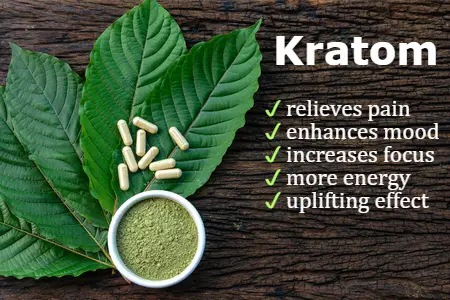
Self-Directed Learning
Gray’s analysis also revealed that the ADHD-labeled young people who fared best outside of standard schooling were those who were able to learn in a more self-directed way. He found that the
few kids in this sample who were still on ADHD medications during homeschooling seemed to be primarily those whose homeschooling was structured by the parent and modeled after the education one would receive in a conventional school.
Replicating school-at-home can also replicate the problematic behaviors found at school, whereas moving toward unschooling, or self-directed education, can give young people the freedom to flourish.
Ending the ADHD overdiagnosis epidemic depends on a societal reality check where we no longer pathologize normal childhood behaviors. Much ADHD-labeling originates from forced schooling environments with learning and behavioral expectations that are developmentally inappropriate for many children. Freeing young people from restrictive schooling and allowing them to learn and grow through their own self-directed curiosity can lead to happier and healthier families and children.
By Kerry McDonald | FEE.org
The views in this article may not reflect editorial policy of The Mind Unleashed.
News
Shocking 3M Documents Reveal Company Hid the Dangers of Toxic Chemicals for Decades

In a shocking resignation letter dated March 28, 1999, a 3M environmental specialist accused the company of being more concerned with profits and image than environmental safety.
According to Richard Purdy who penned the scathing letter, PFOS “is the most insidious pollutant since PCB” and is the cause for a potential health crisis across the entire country, but most notably in the state of Michigan. PFOS is used in 3M’s ScotchGard stain-protection product line and isn’t the only PFAS chemical the company uses.
“It is probably more damaging than PCB because it does not degrade, whereas PCB does; it is more toxic to wildlife,” the letter reads.
“I have worked within the system to learn more about this chemical and to make the company aware of the dangers associated with its continued use,” Purdy wrote. “But I have continually met roadblocks, delays, and indecision. For weeks on end, I have received assurances that my samples would be analyzed soon — never to see results. There are always excuses and little is accomplished.”
A new report by the Environmental Working Group (EWG) and Northeastern University has found that people in 43 states in the United States are exposed to drinking water contaminated with PFAS chemicals, of which PFOS is one.
Michigan has been hit hardest, with at least 46 sites where groundwater has PFAS levels above the Environmental Protection Agency’s (EPA) lifetime health advisory guideline. According to Detroit Free Press, “The Michigan Department of Environment, Great Lakes and Energy has estimated PFAS could be found at more than 11,300 sites in Michigan” including 17 bodies of water with “‘do not eat’ fish advisories, or limitations on consumption of fish, because of PFOS contamination.”
The revealing resignation letter was recently obtained by the Detroit Free Press along with numerous internal 3M documents. The documents were obtained by then-Minnesota Attorney General Lori Swanson during a 2010 lawsuit alleging environmental contamination by 3M in the state of Minnesota. The lawsuit was settled for $850 million in 2018.
While PFAS chemicals have proved useful in numerous applications including cleaning products, waterproof clothing, nonstick cookware, textiles, grease-resistant food packaging, leather, paper goods, paint and more, the very same properties that make it so successful in these applications is what makes it so harmful to environment. PFAS compounds are nearly indestructible, with some referring to them as “the forever chemicals.”
But the same qualities that made PFAS compounds so useful also makes them almost indestructible in the environment, giving them the ominous nickname “the forever chemicals.”
Documents show that 3M was, in fact, aware of PFAS toxicity in lab rats all the way back in 1950. In the mid-1970s, health concerns arose after studies of fish, rats, and monkeys. The problems were so prevalent, that the company became aware of rising levels of PFAS compounds in their employees’ blood along with a link to testicular cancer. PFAS compounds were “found to be completely resistant to biodegradation” way back in 1978.
PFAS, which have been linked to a host of medical conditions such as cancer, thyroid problems, hormone imbalances, pre-eclampsia, learning disabilities and more, are found in the blood of almost 99% of Americans.
Documents obtained during the 2010 lawsuit revealed, not only this shocking resignation letter, but documents outlining 3M’s research into PFAS compounds. It turns out, 3M has been well aware for years that the compounds do not break down in the environment as expected, that they were found in both the blood of employees and the public, and laboratory rats and other animals were experiencing negative health effects.
Despite the revelations, 3M continued to sell PFAS compounds used in a range of products including things that touch both human skin as well as food. The company also neglected to inform the Environmental Protection Agency (EPA).
However, in the 1990s, the EPA became increasingly aware of researching showing the presence of PFAS compounds in the environment and reached an agreement with 3M in 2000 to phase out the use of PFOS by 2003. While 3M stopped using PFOA in 2000, other companies—including DuPont, the company responsible for Teflon—continued their use until an agreement with the EPA to phase them out by 2015.
According to Purdy’s 1999 letter, the environmental specialist argued years before any action was taken that 3M had already “waited too long to tell customers about the widespread dispersal of PFOS in people and the environment.”
“3M continues to make and sell these chemicals, though the company knows of an ecological risk assessment I did that indicates there is a better than 100% probability that perfluorooctansulfonate (PFOS) is biomagnifying in the food chain and harming sea mammals. This chemical is more stable than many rocks.”
“3M told those of us working on the fluorochemical project not to write down our thoughts or have email discussions on issues because of how our speculations could be viewed in a legal discovery process. This has stymied intellectual development on the issue, and stifled discussion on the serious ethical implications of decisions.”
Now, almost 10 years after the 2010 lawsuit in Minnesota, a new one in Michigan is using the very same internal documents.
Both current and former residents of the small midwest town of Parchment, Michigan are suing 3M and Georgia-Pacific over a toxic mess left in a landfill. PFAS compounds have leached from the landfill into the town’s water supply thanks to a paper mill responsible for manufacturing food safe paper coated with 3M’s product. As a result, thousands of current and former residents of the town were unknowingly exposed to high levels of the compound via municipal drinking water.
Nicholas Coulson, the Detroit environmental class-action attorney who is bringing the lawsuit against 3M said of the allegations against the company, “What we’re alleging that 3M did is really a crime against humanity.”
“It’s an absolute outrage that, in the name of profit, for decades they suppressed this information, and they continued to pump these chemicals out in incredible quantities into the natural environment. And the terrible result of that is that some communities, like Parchment, have had to bear the brunt of it.”
“3M had really, really sufficient notice to know that, one, these things don’t go away, they build up and build up and build up, both in the environment and the body, and two, that they cause really harmful effects,” Coulson added.
In his 1999 resignation letter, Richard Purdy concluded:
“I have worked to the best of my ability within the system to see that the right actions are taken on behalf of the environment. At almost every step, I have been assured that action will be taken—yet I see slow or no results. I am told the company is concerned, but their actions speak to different concerns than mine. I can no longer participate in the process that 3M has established for the management of PFOS and precursors. For me it is unethical to be concerned with markets, legal defensibility and image over environmental safety.”
Purdy wasn’t the only one to sound the alarm. The documents reveal that, dating back to the 1970s, numerous employees—including an employee named M.T. Case who author memos revealing toxicity, another who went by Dr. King, and Eric Reiner who worked in the company’s Environmental Engineering and Pollution Control division—urged the company to act on the research.
In a response to the Detroit Free Press, 3M seemingly bragged of their dedication to “research, technology, and clean-up” while calling the story gleaned from the internal documents “incomplete and misleading“:
“3M has dedicated substantial time and resources to researching PFAS and, to that end, we have invested more than $600 million on research, technology, and clean-up efforts related to PFAS. As a responsible steward of our community, we have a record of sharing information we learn with government regulators, the scientific community, as well as local and federal officials.
The small set of documents from the Minnesota litigation portrays an incomplete and misleading story that distorts the full record regarding 3M’s actions with respect to PFOA and PFOS, as well as who we are as a company. 3M acted responsibly in connection with products containing PFAS and we will vigorously defend our environmental stewardship.”
With 19 million people in 43 U.S. states currently exposed to drinking water contaminated with PFAS chemicals, the task of cleaning up these “forever chemicals” that are reportedly more stable than some rocks, is daunting. Companies like 3M that repeatedly prioritize profits and production of their products over people must be held accountable for the havoc wreaked on the environment, their customers, and their employees. While 3M did lose its $300 million/year revenue-maker ScotchGard after the 2000 agreement with the EPA, the loss only represented a mere 2% of 3M’s total sales. And while 3M bragged in their response to the Detroit Free Press of the $600 million spent on “research, technology, and clean-up efforts related to PFAS,” those amounts pale in comparison to the company’s profits, including the $7.9 billion earned in sales in the forth quarter of 2018 alone.
Time and time again, massive corporations that have caused harm—either knowingly or not—are tasked with clean-up costs or fines that barely make a dent in their bottomline. Without significant consequences for their actions, corporations like 3M will likely continue to prioritize profits over the health of the environment and even their customers. Perhaps the newest lawsuit against 3M will finally hold the company accountable to a degree that will impact the future.
Science & Tech
6 Ways to Use Your Smartphone More Wisely

No one denies the potential health and privacy complications that come with having a smartphone. Yet, nearly everyone has one. Some would even say they can’t live without it. Regardless of the drawbacks, there are many smartphone applications that make these devices very useful. Therefore, instead of just mindlessly staying glued to your screen, consider limiting your use to only some of the following.
1. Handling Emergencies
If you are involved in an emergency situation, a cell phone can be a lifesaver. For example, if you’re lost on a road in a middle of nowhere, Google maps or apps such as Waze can be very handy. Furthermore, if you’re in an accident or need a rescue, rescuers can track your location to come assist you. Even if you’re against smartphones, consider stashing a basic cell phone with a prepaid SIM card in the glove box of your car.
2. Child Safety
If you are a parent, you may consider a cellphone a must-have for your children. Especially with teenagers, having a smartphone with GPS can increase your peace of mind when they are out without you. You can identify the current location of your child or all the places they have gone to. You could also use cell phone tracker apps to monitor how your children use their phone.
For younger children, a cell phone may be nice for emergencies. Importantly, with smartphones you can restrict the content they download and access by blocking purchases, websites and apps. Smartphone also allow you to see who your kid talks to on the phone. Or better yet, allow you to limit their calls to only a few numbers.
3. Managing Your Business or Working Remotely
Effective and timely communication is a must in today’s business landscape. Smartphones allow for this with an added bonus. They give you the flexibility to manage work affairs remotely. In addition, if you have employees, certain tracking apps give you the tools to help manage time and tasks. They allow you to community with your staff, even if you’re on vacation or if they are on the road. In addition, you can use smartphones to monitor effective work practices. For example, most delivery businesses use these tracking apps to ensure the drivers are not driving at dangerous speeds and are using designated routes.
It’s important to note, though, that we must learn to disconnect from work. The flexibility to work remotely is priceless, but so is taking time away from work. If your business requires you to stay connected, make sure you set some boundaries. Everyone needs time when they are completely unplugged and free to relax.
4. Find a Lost Device
You may not think this is an important feature of mobile devices, until one goes missing. Then you’ll be eternally thankful that you can use a tracking app to help find your smartphone or tablet. These apps use GPS satellite technology to locate your device. The apps not only help you identify the location and movement, but also any activity on the missing device.
Using this feature is truly a personal choice, as it does require your GPS to stay enabled, which has its own privacy implications. It’s up to you to decide if the investment you’re made in your device is worth protecting. To some, the cost may not outweigh the privacy risk.
5. Traveling and Dining
If you enjoy travel in foreign countries, where you don’t speak the language, a smartphone can be very useful. From translator apps to navigation, it will help you confidently seek out new places. If traveling with others, smartphones give you more flexibility. You can sneak away from the group and explore what you want. Then, connect back up when you’re ready. Additionally, rental cars rarely come equipped with a free GPS device. You can save yourself some cash if you use your phone for navigation instead.
Finally, finding dining options, at home or when traveling, is quite easy with a smartphone, especially if you have dietary restrictions. Sadly, many restaurants no longer advertise in the phone book, so this is becoming more of a necessity. Furthermore, the reviews on dining portals and in Google can be very helpful. As well, there are many coupons that you can access online to lower your travel food bill.
On the other hand, there’s something to be said for engaging with people when you travel. Therefore, don’t always feel like you need to rely on your phone to find a good restaurant, hotel or site. You will gain a great sense of accomplishment and confidence if you act independent of Google as often as possible. As you grow braver, see if you can limit your smartphone use even when traveling in foreign places.
6. Using Self-care and Wellness Apps
Today, there are numerous wellness and self-care apps available on smartphones. Some may argue that these apps should be regarded as nice-to-have perks, versus must-haves, which is actually true. Yet, if these apps help you improve your quality of life, health or general well-being, then do the benefits outweigh the downsides? It is a personal question that only you can answer.
What’s important to understand is that there are now apps and smartphone-based service that help you lead a healthier life. From online yoga classes and customizable workouts, to meditation programs and diet tracking apps, wellness apps can be quite valuable. What’s important is curbing your smartphone use to the apps that bring value to your life, versus distracting you from it.
Finally, nearly all apps now push notifications to your lock screen, which is a very distracting feature. If you choose to use wellness apps on your phone, turn off all notifications.
Conclusion
Because smartphones are essentially ubiquitous in modern societies, our attention has become a valuable commodity for tech companies and online marketers. These companies are very good at distracting you, so you become disconnected from real life experiences.
Don’t fall into the trap of mindlessly reaching for your smartphone every few minutes. Evaluate which apps are sucking up your time, and delete them. Then, decide what applications may bring actual value to your life, and set some parameters on how you’ll use them. Additionally, use a safety device on your phone such as the Aires Shield to reduce the effects of harmful EMF radiation.
Please share with us your ideas of how to use smartphones more wisely, lessening the negative impact these devices have on your mental and physical well-being.
This article (6 Ways to Use Your Smartphone More Wisely) was originally created and published by Waking Times and is published here under a Creative Commons license with attribution to Sofia Adamson and WakingTimes.com.
Health
9 Benefits of Running According to Science

Running is an activity that involves the heart, the muscles, and the lungs. It will help you exercise these vital parts of the body for one person to be able to function better. You will notice that when you regularly jog, there are changes not only on your physical body but also in your emotional state. Running is scientifically proven to be helpful in many ways. If you are planning to achieve a healthier body, you need to integrate running to your daily activities. To further explain the benefits of running as backed up by science; check the list of what you can get when you start adding this to your regular exercises:
Improve your cardiovascular health
If you are thinking about improving your cardiac health, you need to go for a regular run. This activity is proven to help you strengthen your left ventricle. This is possible because the heart is the main part of the body that benefits from running. When you run, your pulse rate slows down and your body consumes more oxygen as compared to the state when you are just resting. This is a great way to help in normalizing the pumping of the blood.
Since running is considered as an aerobic exercise, another target is to burn the carbohydrates and turn them into energy that the body can use up. With this, you will be able to eliminate unneeded fats in the body, especially in the heart. Studies also show that runners have healthier cardiovascular condition compared to the people who are not exercising at all.
According to a study on the cardiovascular aspects of running, running is an activity that is highly aerobic. It does not only convert carbohydrates but also fatty acids into energy. This is one o the best exercises that you can add to your regular activities. However, you should not think that this exercise can make you completely free from organic heart disease. Even if it involves the cardiovascular system, you still need physical examinations and rest. This is specifically true for older and middle-aged runners.
Strengthen joints
Is running better than walking? This is one question that can help you realize the importance of leveling up your regular exercise. Most people believe that a person who has a possibility of developing osteoarthritis should not be running. This is one of the myths that you need to debunk. As compared to walking, running can be beneficial to your bones and joints because it can help not only in enhancing flexibility but also in strengthening the joints, the cartilage and the bones. As compared to running and swimming, it can be more beneficial to you.
A study published by Harvard Medical School concluded that running is not actually a contributory factor to arthritis. For older people who are experiencing this condition, you can be sure that exercises do not add nor worsen it. You are free to exercise regularly. In fact, running can strengthen your leg muscles and your joints. However, you have to make sure that you are not running with an injured leg. If you feel like a part of your leg is painful, you should take a rest and you can also consult your doctor to check if you can still continue running.
Burns calories
If you are into a weight loss program, you should consider running as one of your daily exercises. If you run, you will be able to lose more calories because it requires you to move most parts of your body. It should be understood that the amount of calorie that you will be able to lose depends on the frequency of your run and the intensity you put into the activity. For people who wish to burn more calories, the terrain and the pressure should be considered. Uphill climb requires more energy and it can be the best way for you to lose more pounds.
A research done by the National Weight Control Registry has proven the connection between regular exercise and weight loss. It has been concluded that ninety percent of their respondents who have lost a considerable part of their weight attribute their success to their regular exercise. One of the weight loss exercises that were mentioned in the study that has a positive effect to weight loss is running. However, you have to do it right in order for it to work positively for your own benefit. Here are some of the things that you need to consider if you are going to start running to lose weight:
- Have a specific goal that you want to achieve. If it is to lose weight, decide about how much you should be shedding.
- Always start with your right foot. Running does not have to be done at a constant fast pace.
- Create a schedule for your run. If you are a beginner, you can consider running every other day. This way, you can give your tissues enough time to rest.
- Add distance and change your pace slowly. You should not push yourself to an activity that will only let you end up tired. You should avoid overtraining and just work at your own pace.
Help promote weight loss
One of the main ways on how to lose weight is to speed up metabolism. Most people gain weight because their metabolism is not normal and also because of inactivity. Your diet is another reason why you gain weight. But there is a way that can help you control your weight; you just need to engage yourself in activities that will help you lessen the calories and fats. People who do not run or exercises are the ones who are mostly gaining more weight. With the body’s inactivity, the calories are not converted into energy and the body continues to gain more pounds. Regular exercise and daily runs in the park can be very helpful in maintaining your weight.
Reduce cancer risk
Cancer only starts to manifest when the person’s immune system is no longer capable of protecting the body. This is why people who have a history of cancer in the family are encouraged to engage themselves in activities that will be beneficial to the body. Aside from eating natural and organic food, you need to engage yourself with a daily exercise. Running is effective because it does not only help you lessen fats but will also help in strengthening the body as a whole. A person who is physically active is usually healthier compared to people who are not exercising.
Dr. Anthony Komaroff affirmed that exercises can really help reduce the risk of cancer as posted by Harvard Health Publishing. It has been noted that the higher the physical activity of a person, the lesser the possibility of the risk of cancer to be developed. To relate it to running, it is one of the most common and the most famous exercise that everyone can do. Age does not matter if you really want to run and use it to improve your body condition.
Boost your memory
There is a very interesting study conducted in 2016 that supports the connection of running and boosting the memory and your creativity. When the body is active, the person is more creative. So if you are experiencing problems that are connected to the memory, you can consider going for a run. This is scientifically proven by the fact that more oxygen is being inhaled by the person when he is running. The brain needs more of this in order for it to function well. Aside from that, it can also help you release yourself from anxiety and other stress. This way, you can easily become more creative and your brain can work more efficiently. Aside from that, another study proves that running can help produce hormones that enable the brain cells to grow.
A recent study also showed that regular exercise has a direct and indirect positive effect on the brain. It can benefit the brain in a way that it can reduce inflammation and it also ensures that there is a growth of new blood vessels in the brain. With this, the survival of new brain cells is also being promoted.
Increases your stamina
Do you ever wonder how seasoned runners were able to strengthen themselves and were able to maintain a strong body? The answer is through running regularly. At the beginning, of course, you will see yourself having difficulty breathing and you will also experience muscle pains. However, if you continue and make this activity a part of your everyday life, you will see the improvements. As you continue to put a little pressure on your routine, you will also witness how your stamina would be strengthened.
Your endurance depends on how many activities you are allowing yourself to do and sometimes, it is also dependent on your weight and body structure. With the connection between running and weight loss, it can be deduced that whenever you run, you are strengthening your body muscles. As you continue with this activity, you will notice how easier for you to do more activities as you become stronger. After a few months, you will also realize that you can do so much more without losing breathe. This is possible if you continue to add running as one of your regular exercises.
Help you live longer
As a person ages, he also gets exposed to a lot of factors that can cause disease and other unhealthy conditions that can cause early mortality. This is why you also need to think about running as a regular activity because of many reasons. It helps lessen the possibility of developing chronic diseases. It also helps in improving your sleep. With this, the body gets enough rest and the body cells will easily regenerate.
A recent study published in 2017 has affirmed that running is indeed one of the secrets for long life. In this research, they have proven that 25 to 40 percent of runners were able to avoid premature mortality as compared to those who do not run. This is connected to the different results of running that include the prevention of chronic diseases. As you continue an active lifestyle, you will notice how much positive changes are going on to your body. This is also true with running. You should consider this as one of the regular exercises that you should be adding to your health list.
Decrease cravings for unhealthy foods and substance
There have been a lot of researches that asked participants to engage in running to measure how this activity can help in their diet. After running, it was a recorder that the runners chose to eat healthier food instead of going for some junk food. With this, it was concluded that running can help you lessen your cravings for unhealthy food.
Whenever you run or do other exercises, you will notice how you become more conscious with what you are eating. For the beginners who are not eating the right food, it is noticeable that they easily get tired. This is because of the fact that the body does not have enough energy. If you really want to make running a habit, you have to make sure that you are eating the right food. As you embrace this activity, you will notice how you slowly change some other parts of your lifestyle including your eating habits.
Running for an hour regularly is really helpful to the body. The different benefits enumerated above are just a few of the many benefits you will get from this exercise. If you are planning to embrace a new improved healthy lifestyle, you should consider running as one of your activities. This will not only allow you to lose weight and improve your physical health. Running can also ensure you positive effects to the emotions. So whenever you are feeling down, you can wear your running shoes and get some air as you keep yourself mobile.
News
EPA Report Says Same Pesticide It May Approve for Expanded Use Threatens Birds and Bees

Sizable factions of the scientific community have railed against the EPA for continuing to allow the imprudent and widespread use of neonicotinoid pesticides on the nation’s crops before extensive testing can determine if the substances pose as deleterious a risk as that found in multiple studies — several of which were conducted by the Environmental Protection Agency.
Such as ongoing analysis and the government’s latest assessment of four neonicotinoid pesticides (often referred to for brevity as ‘neonics’), two of which, EPA scientists conclude, directly threaten not only indispensable pollinators like bees and butterflies, but birds, aquatic life, other insects, and some small mammals, as well.
“The EPA’s assessments confirm neonicotinoid pesticides are extremely harmful to birds and aquatic life at the very center of our ecosystems,” asserted Center for Biological Diversity director of environmental health program, Lori Ann Burd, in a statement Friday. “With bird, aquatic invertebrate and bee populations in decline, the only way to prevent further catastrophic damage is to follow Europe’s lead and ban these dangerous pesticides.”
Dangerous, to say the least, in terms of impact to ecosystems and the broader environment — but, in particular, to the species and pollinators responsible for much of the nation’s agricultural acreage.
“In today’s assessment the EPA found that risks posed to certain birds from eating neonic-treated seeds exceeded the agency’s level of concern — the level at which harm is known to occur — by as much as 200-fold,” the Center for Biological Diversity statement continues. “In addition to killing birds, a recent scientific study also found, neonic pesticides significantly impair the migratory ability of seed-eating songbirds.
“Today’s analysis found that if neonic-treated seeds make up just 1 percent to 6 percent of a bird’s diet, serious harms could result.”
As Burd and the Center note, similar results abroad led the European Union to institute a temporary ban on neonics, while agency regulating pesticides in Canada recommended a ban for one of the most widely used neonicotinoids due to depredation of aquatic life — yet, these sobering findings from the government agency putatively tasked with protecting the environment do not necessarily secure a ban in the United States.
“The EPA’s own research leaves no question that neonicotinoids pose unacceptable risks,” the environmental health expert opined. “But while other developed nations wisely restrict use of these dangerous poisons, the United States has refused to take even the most basic steps to protect our wildlife from neonics.”
Four neonicotinoid pesticides — clothianidin, thiamethoxam, dinotefuran, and imidacloprid — are under investigation by the EPA after a growing body of evidence pegs the insidious substances responsible for sharply declining honey bee, butterfly, and other pollinator populations, as well as slumps in numbers of endangered species, in the U.S. and overseas.
But it’s the latter, imidacloprid, which is of exceptional concern to environmentalists and vigilant scientists — posing an “acute risk,” finds the EPA, to bird populations when sprayed directly onto crops. Indeed, the pernicious substances also threaten birds and animals eating neonic-treated seeds — which is one common method of delivery to treat plants, like cotton, with these pesticides.
“Neonicotinoids are a class of pesticides known to have both acute and chronic effects on honeybees, birds, butterflies and other pollinator species, and they are a major factor in overall pollinator declines,” the CBD press statement from December 15 explains. “These systemic insecticides cause entire plants, including pollen and fruit, to become toxic to pollinators; they are also slow to break down and therefore build up in the environment.”
And, as Truthout notes, “In 2016, the EPA also found that imidacloprid ‘potentially poses risk to [bee] hives when the pesticide comes in contact with certain crops that attract pollinators,’ according to a preliminary assessment released at the time.”
This November, Futurism reported on a stunning analysis of two of the world’s most popular pesticides, the neonicotinoid, imidacloprid, and the organophosphate, chlorpyrifos — widely suspected of causing brain and nerve damage, and in a class of substances which indeed do, although the assertion remains technically unproven — a long-temporarily banned pesticide removed from consideration for permanent prohibition by Trump EPA-appointee, Scott Pruitt, in March 2017, under highly suspect circumstances.
“Studies on the risks of neonicotinoids have often focused on bees that have been experiencing population declines. However, it is not just bees that are being affected by these insecticides,” Christy Morrissey, a biology professor at the University of Saskatchewan, warned in a press release announcing the study, at the time of publication.
Post-doctoral fellow and leader of that research team, Margaret Eng, added, “These chemicals are having a strong impact on songbirds. We are seeing significant weight loss and the birds’ migratory orientation being significantly altered. Effects were seen from eating the equivalent of just three to four imidacloprid treated canola seeds or eight chlorpyrifos granules a day for three days.”
She noted that although recovery from the effects was possible, “the effects we saw were severe enough that the birds would likely experience migratory delays or changes in their flight routes that could reduce their chance of survival, or cause a missed breeding opportunity.”
Futurism elaborated on the findings, “The insecticides have devastating and quick-acting effects on songbirds. They lost up to 25% of both their body mass and fat stores in addition to becoming lethargic and not eating as much (both signs of acute poisoning). They also became confused when attempting to migrate, unable to successfully orient themselves.”
Yet, the Trump administration’s EPA appears less than reluctant to allow the prolific use of all of the aforementioned pesticides.
In fact, just before press time, the Center for Biological Diversity issued yet another media statement pertaining to neonicotinoids, specifically in re, thiamethoxam, whose application for expanded use was surreptitiously slipped into the Federal Register on Friday — altogether unannounced by the dubious Environmental Protection Agency. Should the application garner approval, the substance — currently allowed to be applied as a seed coating — would be sprayed directly onto food crops, as well.
“For years the EPA and pesticide companies bragged that by using treated seeds they were avoiding spraying insecticides, and despite the science showing that these treated seeds were deadly to birds, claimed that they were environmentally beneficial,” Burd averred. “But we can expect the Trump EPA to now ignore the risks to birds and bees and approve these ultra-toxic pesticides to be sprayed across hundreds of millions of U.S. acres.”
Neonicotinoids indeed remain under ostensive review by the agency, with a determination to be delivered within the next two years.
While waiting without bated breath for government agencies to render verdict for or against an immense and ballooning body of scientific research admonishing of the dangers of neonicotinoids, consider the altogether ominous concluding thought from the Center’s newest press release — and the potentially tragic ramifications of erstwhile flippant, myopic decisions,
“A large and growing body of independent science links neonicotinoids to catastrophic bee declines. Twenty-nine independent scientists who conducted a global review of more than 1,000 independent studies on neonicotinoids found overwhelming evidence linking the pesticides to declines in populations of bees, birds, earthworms, butterflies and other wildlife.”
Image: Siam Teewareecharouen/Shutterstock.
Paradigm Shift
EXCLUSIVE: Sister Kate (Weed Nun) on the Divine Feminine and the REAL Holy Trinity

Raise your hand if you’ve heard of Sister Kate of the Sisters of the Valley. The bad-ass activist, who was formerly known as Sister Occupy (and still is to some), founded the organization which grows CBD-rich strains of marijuana for medicinal purposes. Located near Merced, California, the 1-acre property exists as an oasis and education center for a handful of women who call themselves nuns but aren’t associated with any religion.
Recently, I had the pleasure of chatting with Sister Kate (Christine Meeusen) to pick her brain about the women’s work. As our conversation evolved, she dropped copious amounts of wisdom on the subjects of marijuana, the divine feminine, and how the mainstream media continues to re-hash a lie about cannabis being a “Holy Trinity.”
Watch the interview below:
A recap:
The Sisters of the Valley farm was founded in 2014, shortly after Sister Kate became known as “Sister Occupy.” During our interview, she relayed that she donned a nun’s habit in response to authorities declaring pizza (due to the tomato sauce) a vegetable. According to her, the development was further evidence of America being a conquered and oppressed nation.
She said,
“I learned from my travels in Europe that you learn to tell the difference between a conquered nation and the conquerers. Go to where the people are conquered, and you see a shabby version of the conquerers.”
After leaving Europe following a messy divorce, “America looked to me like a conquered people,” she said. “We dress like a conquered people, we act like a conquered people. Also, the sign of a conquered people is that you fight against your leadership instead of with it.”
“I was very disgusted,” she added.
When Sister Kate joined the Occupy movement, she felt as if she had finally found her “people.” Those she marched with encouraged her to follow through with her plan of donning a nun’s habit, so she did. “Within one visit, the Occupy movement had dubbed me ‘Sister Occupy’,” said Sister Kate. Before long, supporters began asking how they could join the movement she had inspired. Her response was, “No, you don’t understand! I’m an activist, anarchist, single nun!”
But eventually, she realized something did need to be organized. “That led to about a three-year discussion before Sisters of the Valley was formed,” she said.
Before Sister Kate declared herself a nun, she spent most of her time delivering CBD oil to the sick and “raising, cooking and cleaning” for a family with six kids. Because of this, she already felt like a nun. As a result, she didn’t find the lifestyle transition too difficult.

Credit: Northwest Cannacast
Sisterhood and the Divine Feminine
In the interview, Sister Kate goes on to explain that though the women implement pagan practices into their ceremonies, they don’t align with any one religion. Rather, most of their inspiration is drawn from the Beguine nuns, who were the precursors to the Catholic nuns.
She explained that the Beguine nuns were self-empowered, spiritually empowered, natural healers, and scholarly women. Because of this, they were considered “dangerous” and many of them were burnt at the stake. The Sisters of the Valley look to the Beguine nuns as their role models, because they hope to empower new generations of women don’t degrade or cheapen themselves to get ahead.
Sister Kate added that now is a very important time for women in history. This is because change is not only desired by both men and women, it is needed. And finally, females have an opportunity to do better than their husbands, fathers, brothers, etc… This isn’t to say men aren’t needed — in fact, the contrary is true. For sustainable, positive change to result as is intentioned, men and women need to work together.

Credit: NBC News
The REAL Holy Trinity
When the Sisters of the Valley began sharing their vision with the world, journalists were eager to interview the change-makers. However, one reporter made a mistake and wrote that the Sisters of the Valley consider the cannabis plant to be the real Holy Trinity.
As Sister Kate incredulously explains in the interview, one thing cannot be a trinity.
“I think it’s hilarious, because a newspaper reporter said the cannabis plant is our holy trinity. How can one thing be a trinity? No one in the media called him on it,” she said.
However, because the media wouldn’t stop “whispering,” she ended up inventing three traits that make the cannabis plant a trinity. Said Sister Kate,
“Because so many people have said that the cannabis plant is our holy trinity, I actually, in the last couple of days, came up with a cannabis plant holy trinity analogy. That is, that the plant is compassionate, it is cooperative, and it is intelligent.”
So there you have it.

Credit: News.Trust.org
Why Women Should Plant Cannabis To Eliminate Crime
In addition to sharing several compelling anecdotes from people who have improved their conditions with CBD oil and CBD-containing lotions and tinctures, Sister Kate relayed how women can rid the world of criminals by planting CBD-rich strains — which are legal in all 50 states. She said,
“Order from Attitude Seed Bank, out of the UK, strains of seeds that are meant to be under 1 percent THC and over 10 percent CBD. And every women should take the seeds and grow them inside and outside in their yard, and grow them everywhere… Because, one time a thief would steal that weed and try to sell it, and the thieves would be killed because they’re going to sell it like it’s going to get someone high. They’re going to sell it for $1,000/lb, and they’re going to get killed and bingo — we’ve just wiped out all the thieves, and we’re free to go forward.”
“So, my point is women need to grow this everywhere. And then dare the law to shut them down. Because all the laws were made for psychoactive cannabis, not for hemp,” she concluded.

Credit: Refinery29
Please watch the full interview above, as Sister Kate talks about many more topics, including why people should use CBD oil, why the nuns’ crops are legal in all 50 states and can be distributed to other countries, the organization’s plan(s) to cultivate marijuana in Canada, and much, much more.
It was an amazing experience connecting with this activist. Sister Kate is proof that one person can make a positive difference in the world. Hopefully, her efforts inspire you. Learn more by visiting the Sisters of the Valley website and Facebook page.
What are your thoughts? Please comment below and share this news!
Science & Tech
“Ecological Armageddon” — Up to 82% Decline in World’s Insect Populations in 27 Years Stumps, Horrifies Researchers

An “ecological armageddon” has been set in motion, thanks to an extraordinary 75 percent or more decline in insect species worldwide, finds a new study twenty-seven years in the making — a striking development one of the researchers described as, unabashedly, “very alarming.”
“The fact that the number of flying insects is decreasing at such a high rate in such a large area is an alarming discovery,” study researcher Hans de Kroon, of Raboud University, told The Guardian.
With the total mass of flying insects plunging by more than 75 percent in just over a quarter century, ‘very alarming’ hardly pretends to describe the jaw-dropping findings.
Insects play an inextricable role in the health of planetary ecosystems, providing prey for larger species and pollinating the world’s agricultural crops and edible plants — so, a decisively steep decrease in their numbers prognosticates at best an austere future.
In 1989, dozens of amateur entomologists across Germany began using a strictly standardized method of collecting insects using mesh tents called malaise traps to catch 1,500 samples of all flying insects from 63 nature preserves. But, despite, the somewhat limited geographical breadth of the research, scientists warn their findings, published in the journal Plos One, apply to any area focused predominantly on agriculture.
“After measuring each year’s samples by weight, scientists found that the average fell by more than 75 percent over the 27-year period. During the summer months, the fall was measured at around 82 percent,” RT reports, emphasis added.
That’s an 82 percent decline during the season insect populations should be their most voluminous.
Environmental and natural scientists and others have warned for years vanishing pollinator populations will ultimately spell disaster for humans and other animal species, but such a comprehensive study as that undertaken by researchers with Raboud University in the Netherlands has never before been managed.
Despite the dwindling of insects is clear and undeniable, the scientists were uncertain as to a singular cause, positing pesticides, urbanization, changing climate, and other factors are all likely contributors.
“The weather might explain many of the fluctuations within the season and between the years, but it doesn’t explain the rapid downward trend,” lamented Martin Sorg of the Krefeld Entomological Society in Germany and leader of research by the amateur entomologists. He believes the tiny creatures forays away from protected areas — which offer infinitely greater diversity than agriculturally-cultivated land — contributes to population downfall.
“Farmland has very little to offer for any wild creature,” he continued. “But exactly what is causing their death is open to debate. It could be simply that there is no food for them or it could be, more specifically, exposure to chemical pesticides, or a combination of the two.”
Whatever the cause, the scientists fear the situation has quietly reached apocalyptic proportions.
“Insects make up about two-thirds of all life on Earth,” asserted Professor Dave Goulson of Sussex University, who contributed to the study, but “there has been some kind of horrific decline. We appear to be making vast tracts of land inhospitable to most forms of life, and are currently on course for ecological Armageddon. If we lose the insects then everything is going to collapse.”
As the Guardian notes, many specific species of flying insects and pollinators, like the Monarch butterfly, have come under the microscope over dwindling numbers, but — because the researchers in this study sampled species like wasps and flies not ordinarily studied, at all — this body of data is considered comprehensive enough to be representative of the true scope of the problem.
Worse, researcher Caspar Hallmann of Radboud University says the fact the study conducted sample sweeps of environmentally-protected areas should further amplify alarm.
“All these areas are protected and most of them are well-managed nature reserves,” he noted. “Yet, this dramatic decline has occurred.”
A two-year study from the Intergovernmental Science-Policy Platform on Biodiversity and Ecosystem Services appearing on the website for the Food and Agriculture Organization of the United Nations and published in February 2016, hoisted a red flag on vanishing insect numbers worldwide — bluntly reminding the world, in part,
“Nearly 90 per cent of all wild flowering plants depend at least to some extent on animal pollination.”
Additionally, “The volume of agricultural production dependent on animal pollination has increased by 300 per cent during the past 50 years, but pollinator-dependent crops show lower growth and stability in yield than crops that do not depend on pollinators.”
That, before the extent of insect declension had been assessed.
“It provides important new evidence for an alarming decline that many entomologists have suspected is occurring for some time,” U.K.’s University of East Anglia’s Lynn Dicks, who did not participate in the research, said of the study findings.
“If total flying insect biomass is genuinely declining at this rate — about 6% per year — it is extremely concerning. Flying insects have really important ecological functions, for which their numbers matter a lot. They pollinate flowers: flies, moths and butterflies are as important as bees for many flowering plants, including some crops. They provide food for many animals – birds, bats, some mammals, fish, reptiles and amphibians. Flies, beetles and wasps are also predators and decomposers, controlling pests and cleaning up the place generally.”
Goulson darkly lamented that, during a road trip across France this summer, the splats of dead insects didn’t even force repeated windshield cleanings as such a route through the country would have in years past — a telling if grim reminder of the inextricable role in the planet’s health insects play.
Perhaps now scientists and researchers won’t be seen so much as alarmists — and the resounding Cassandra call to action can be heeded with some expediency — if the situation isn’t already irreversible.
It was just two years ago Goggy Davidowitz, professor in entomology, ecology, and evolutionary biology at the University of Arizona, sounded nearly the exact alarm Goulson is now imploring the world to hear.
“If insects were to disappear, the world would fall apart,” Davidowitz flatly asserted after a similarly ominous study in November 2015, “there’s no two ways about it.”
Image: Wikimedia Commons/Orangeaurochs.
-

 Ancient History2 weeks ago
Ancient History2 weeks agoA New Chapter Of The Bible Was Found Hidden Inside 1,750-Year-Old Text
-

 News3 days ago
News3 days ago9 Eerie Stories Of Third Man Syndrome, When People Claimed An Unseen Presence Helped Them Survive A Disaster
-

 Entertainment6 days ago
Entertainment6 days agoJames Franco Explained How Life Is Now Different After Being ‘Cast Out’ of Hollywood
-

 Awareness6 days ago
Awareness6 days ago‘Bleeding Eye’ Virus Sparks Travel Warning and Worldwide Concern – What Is the Incurable Disease?






